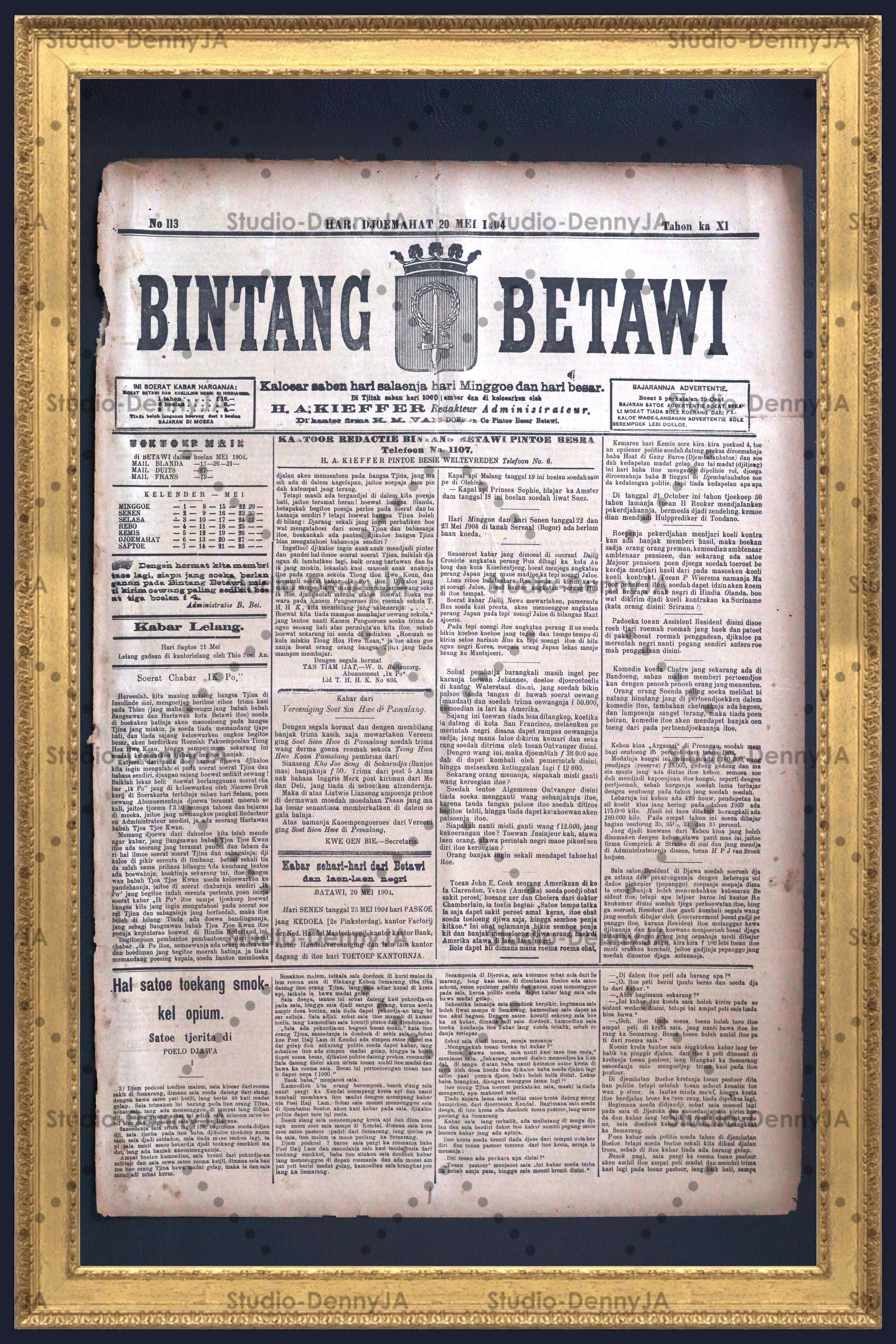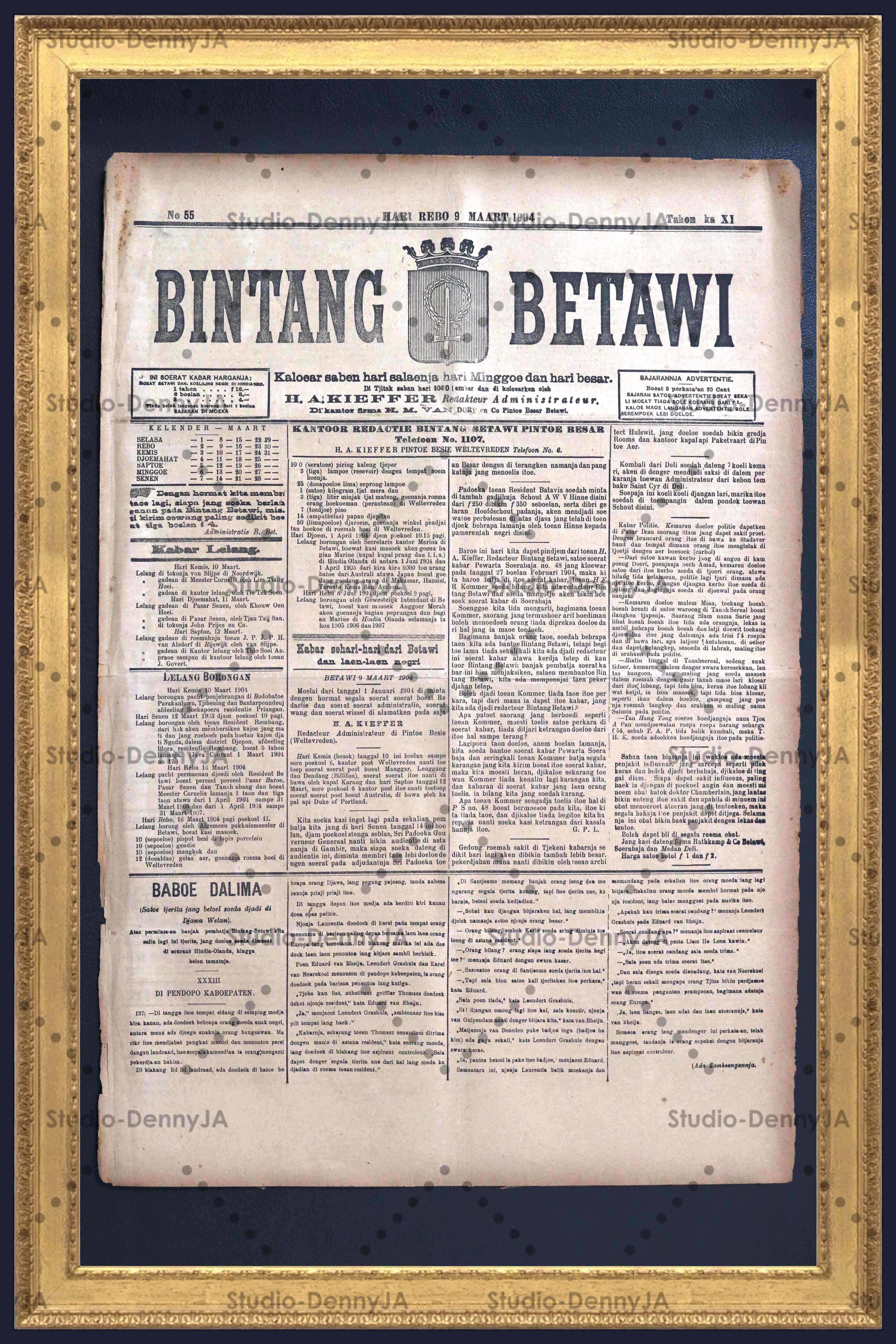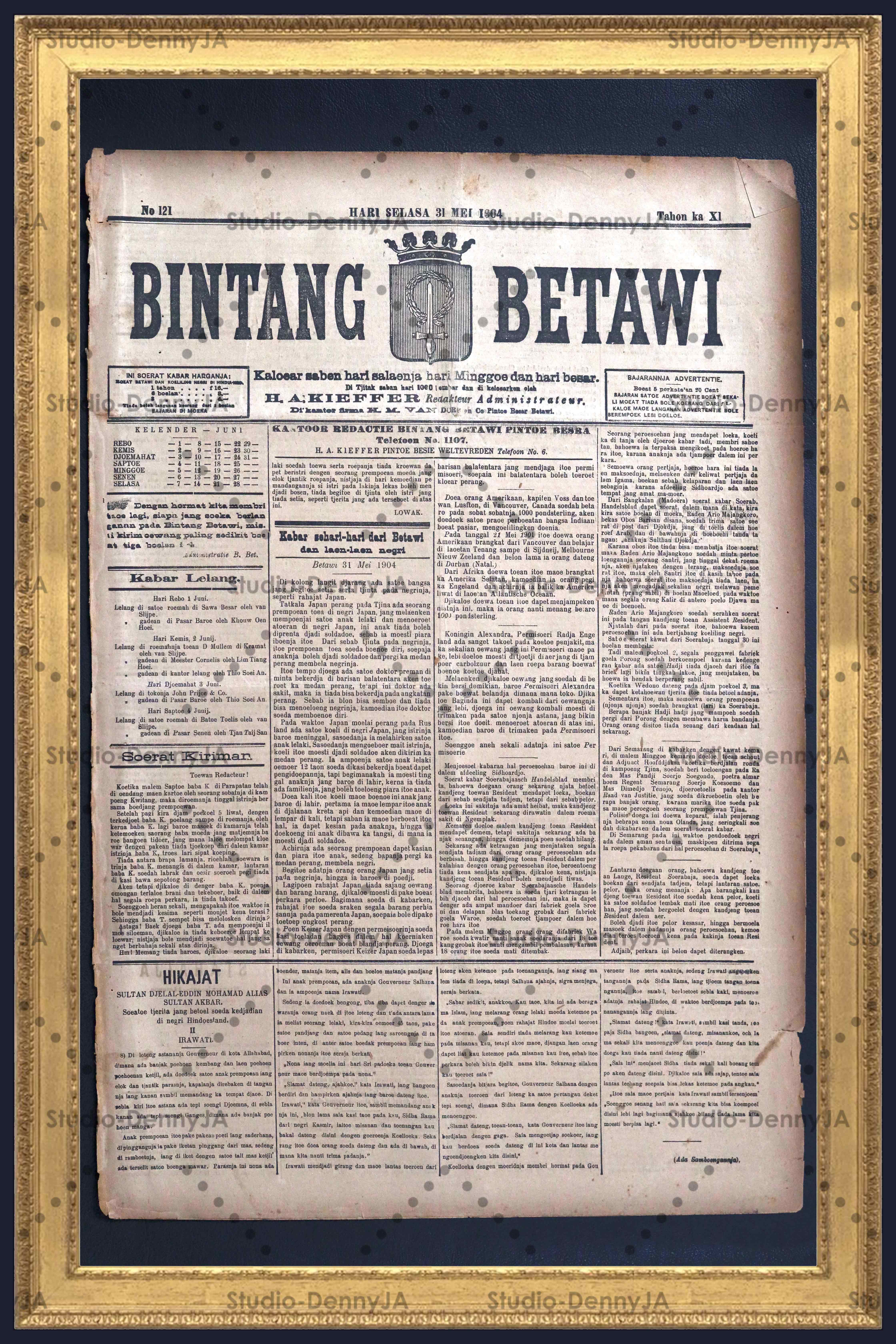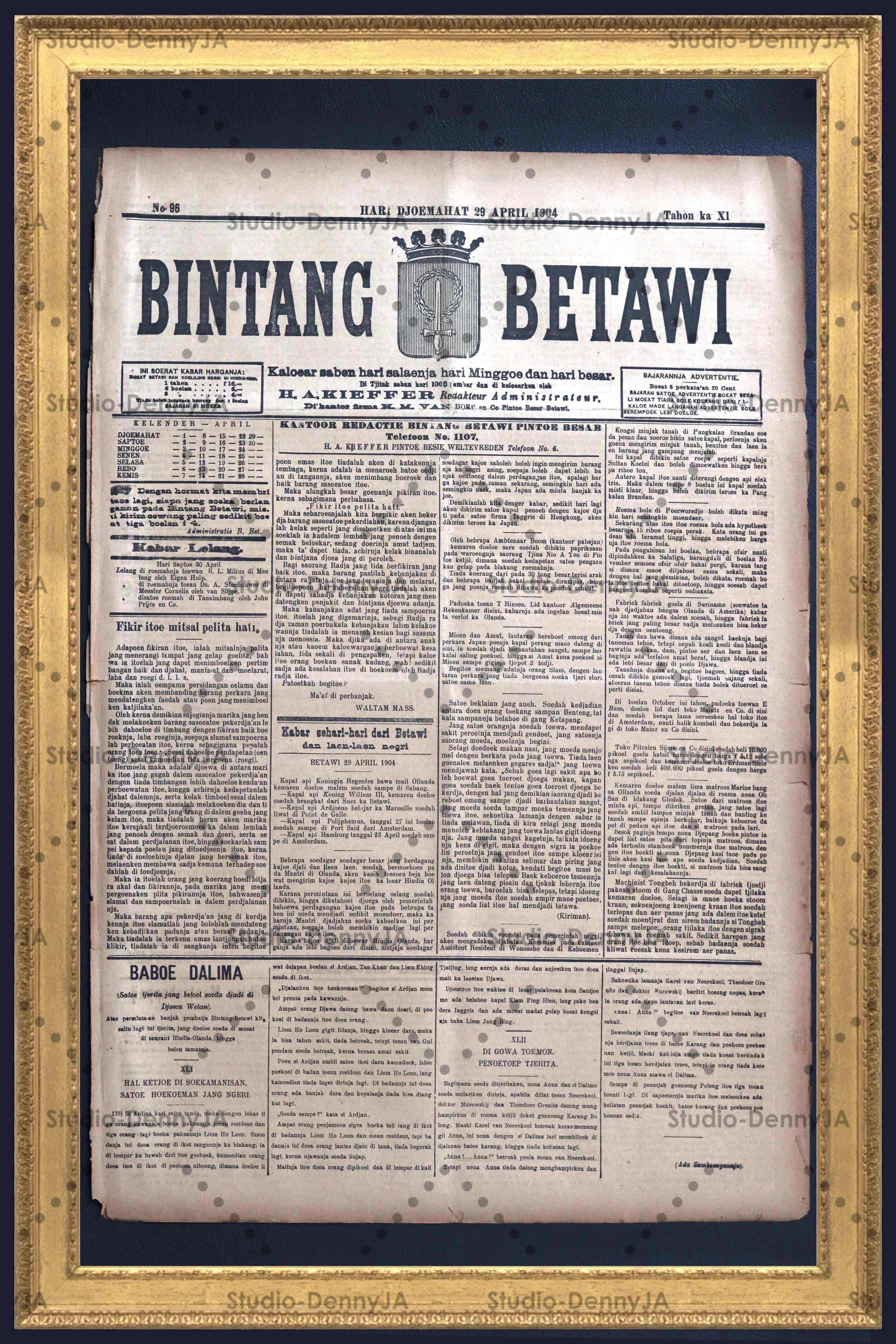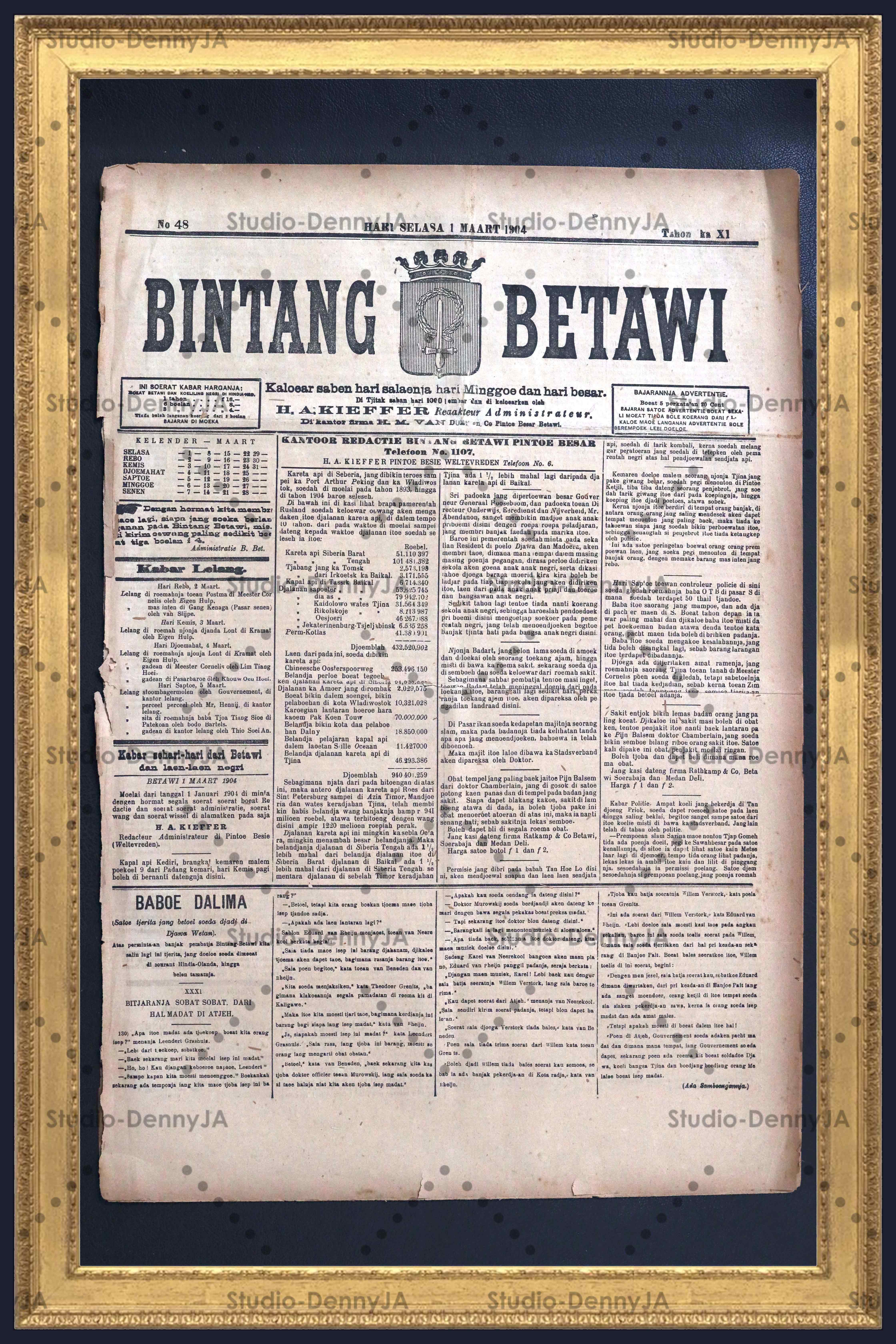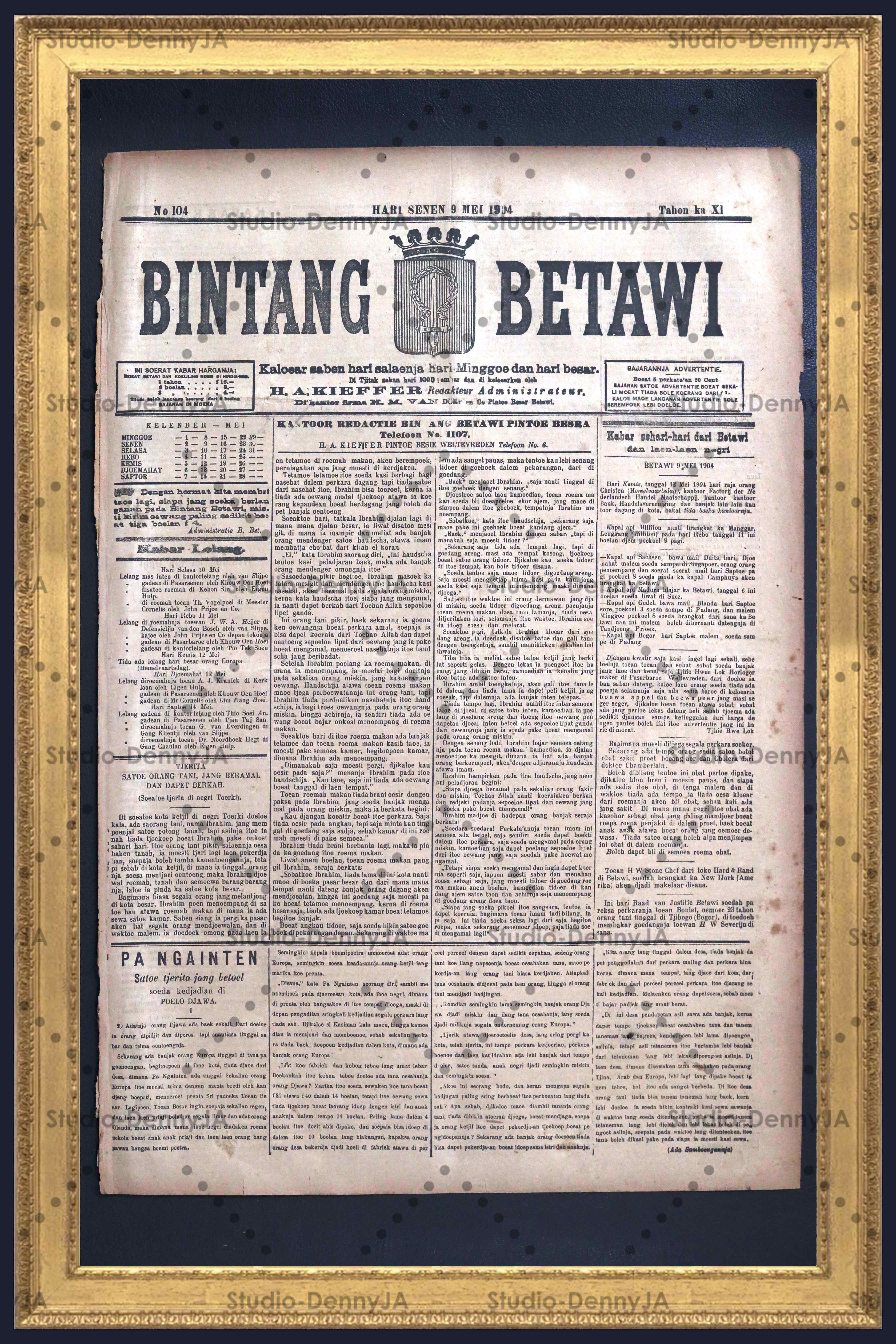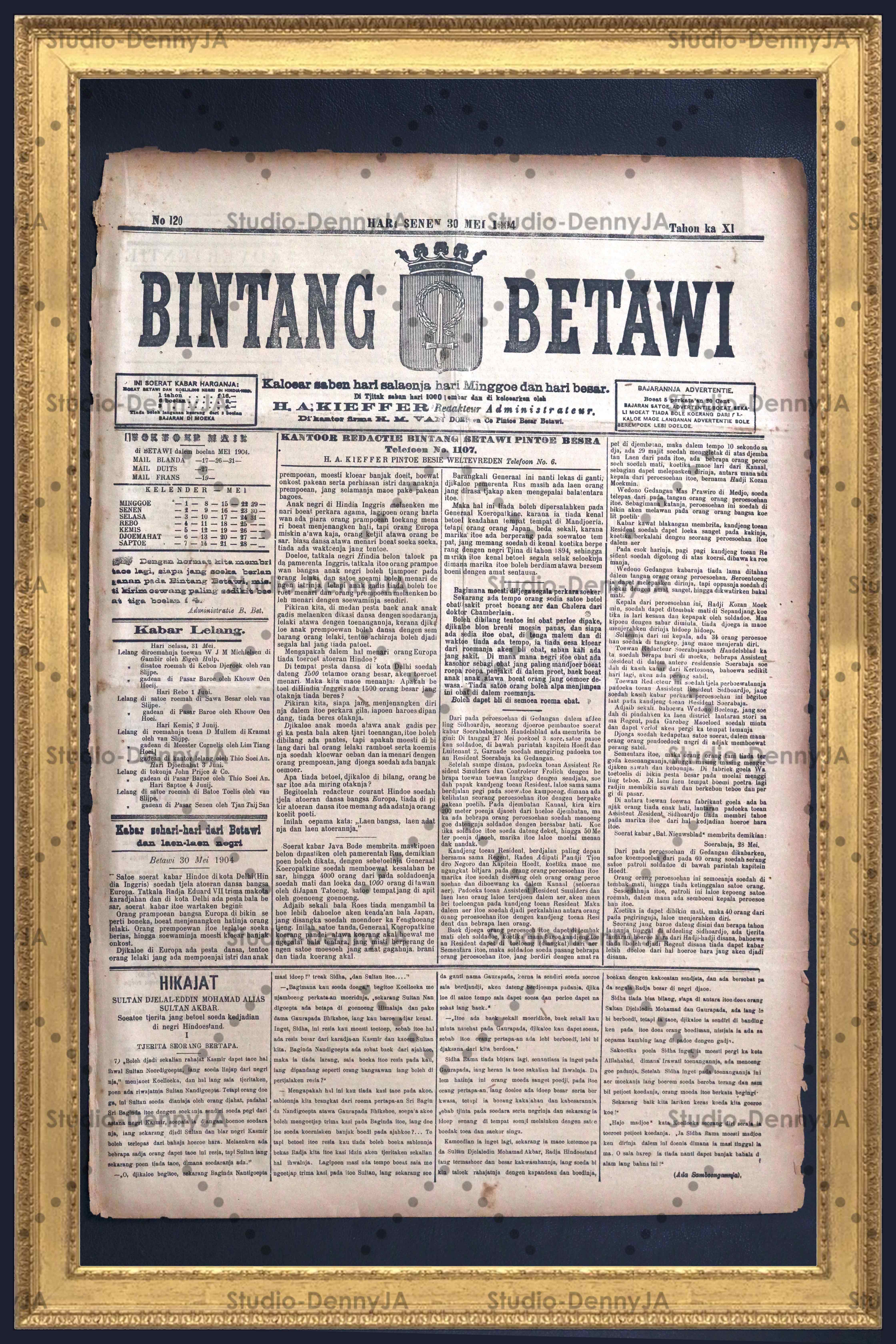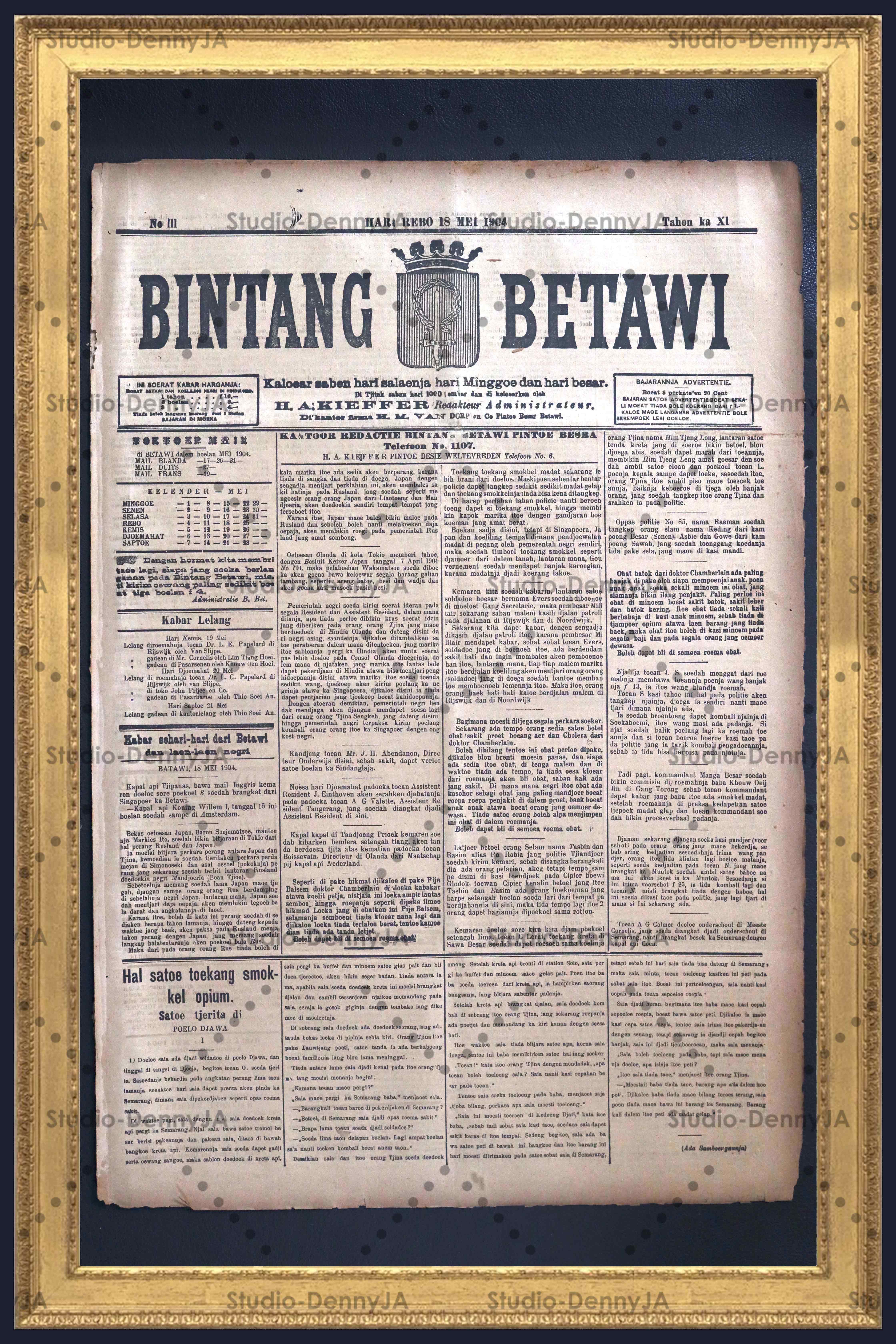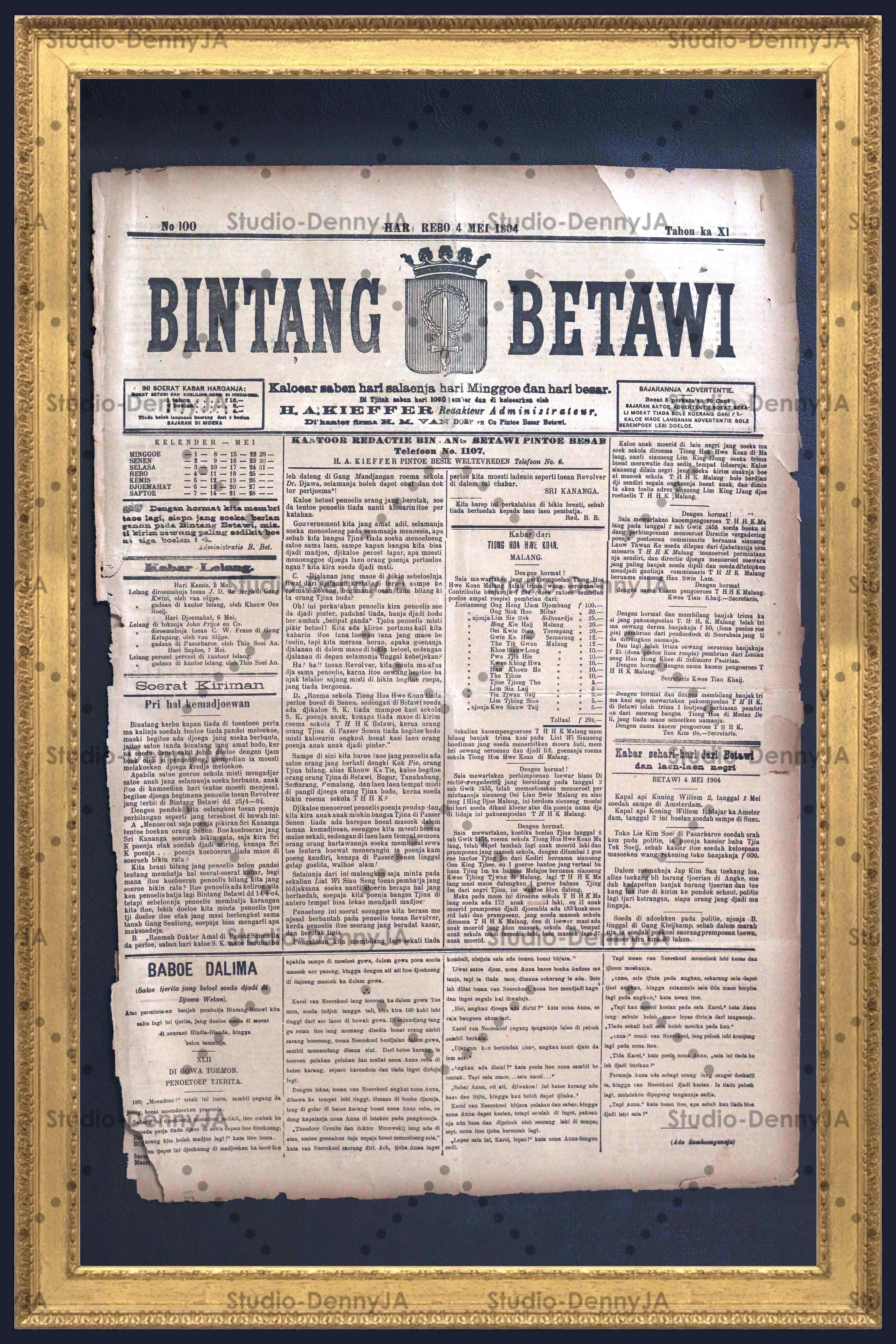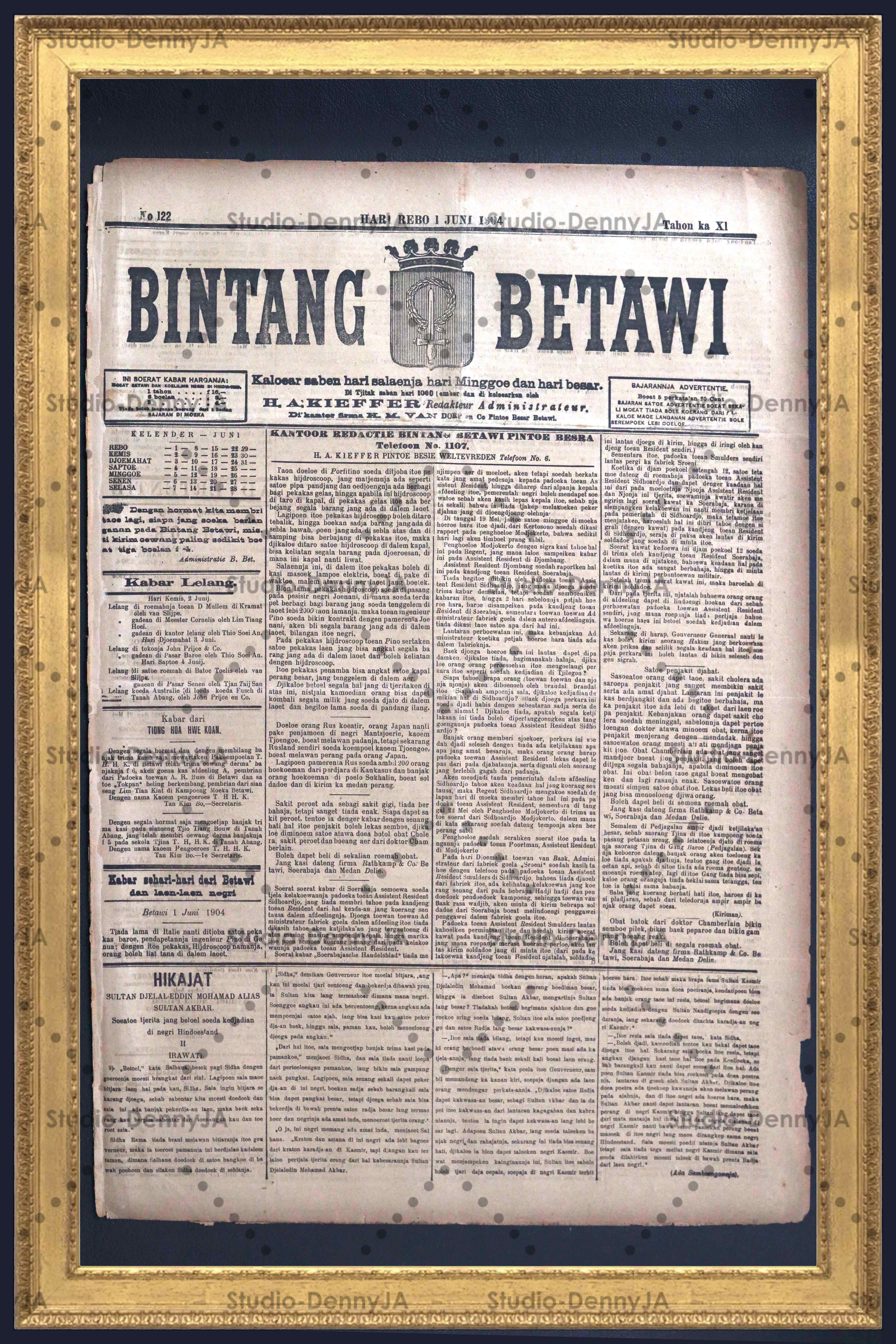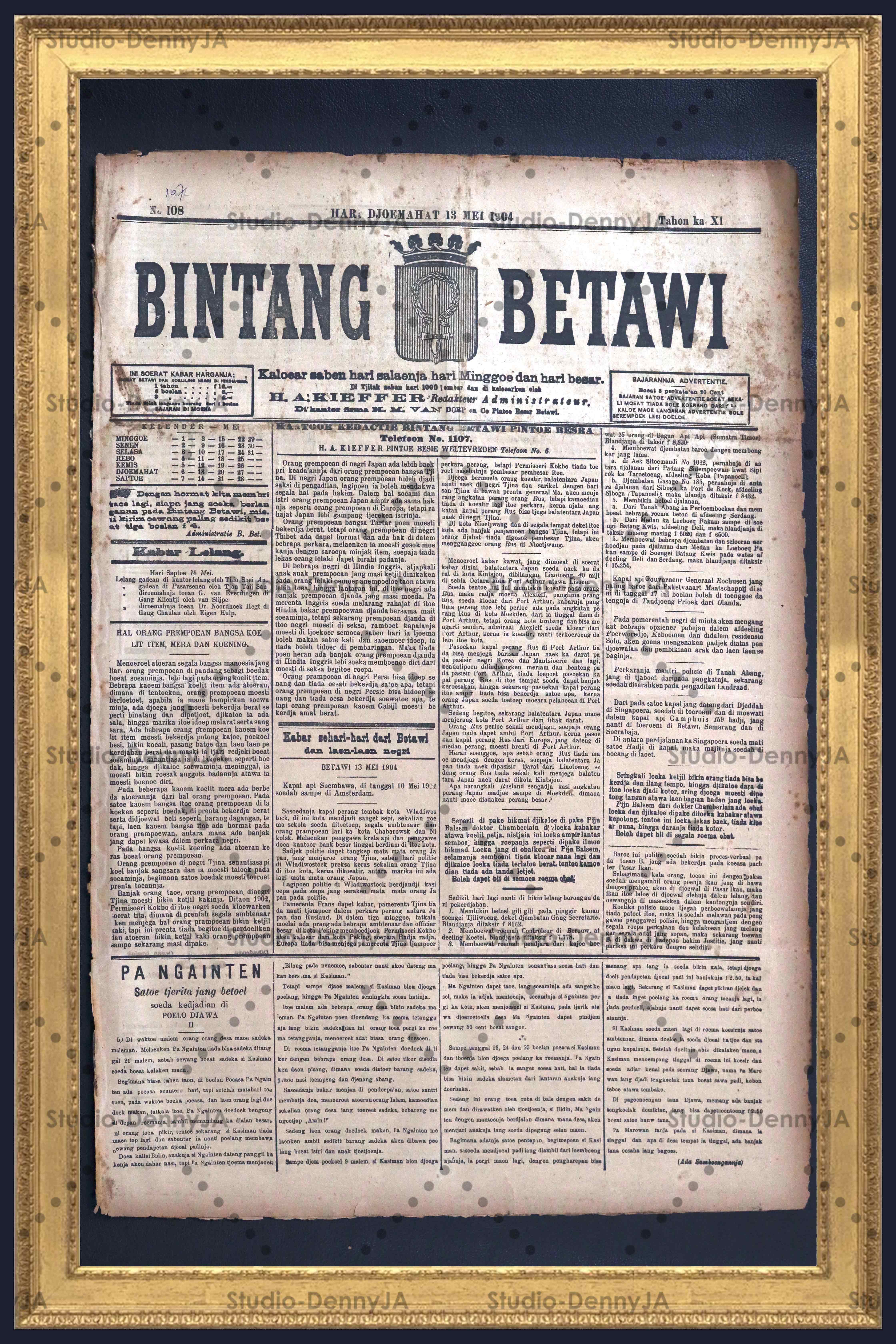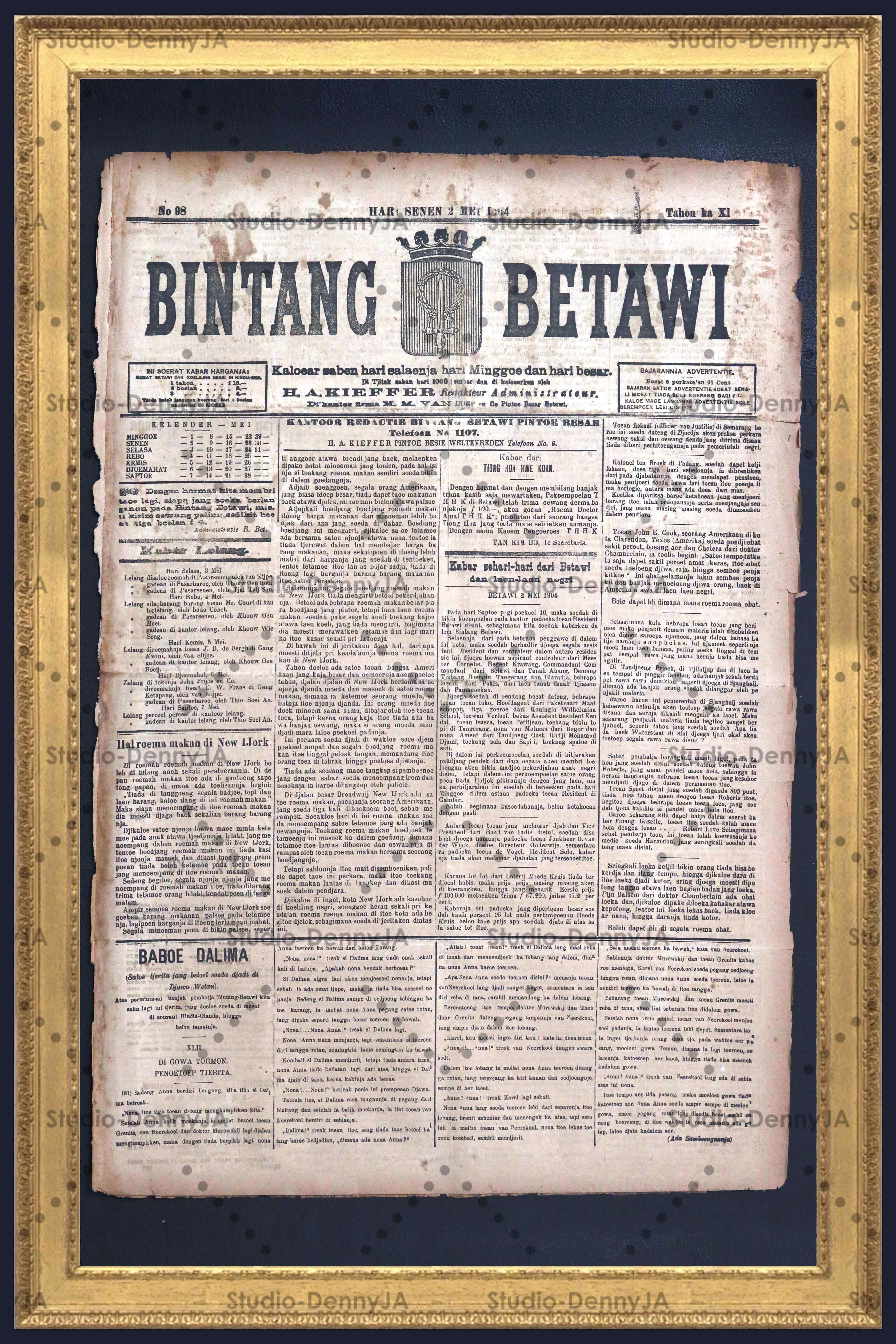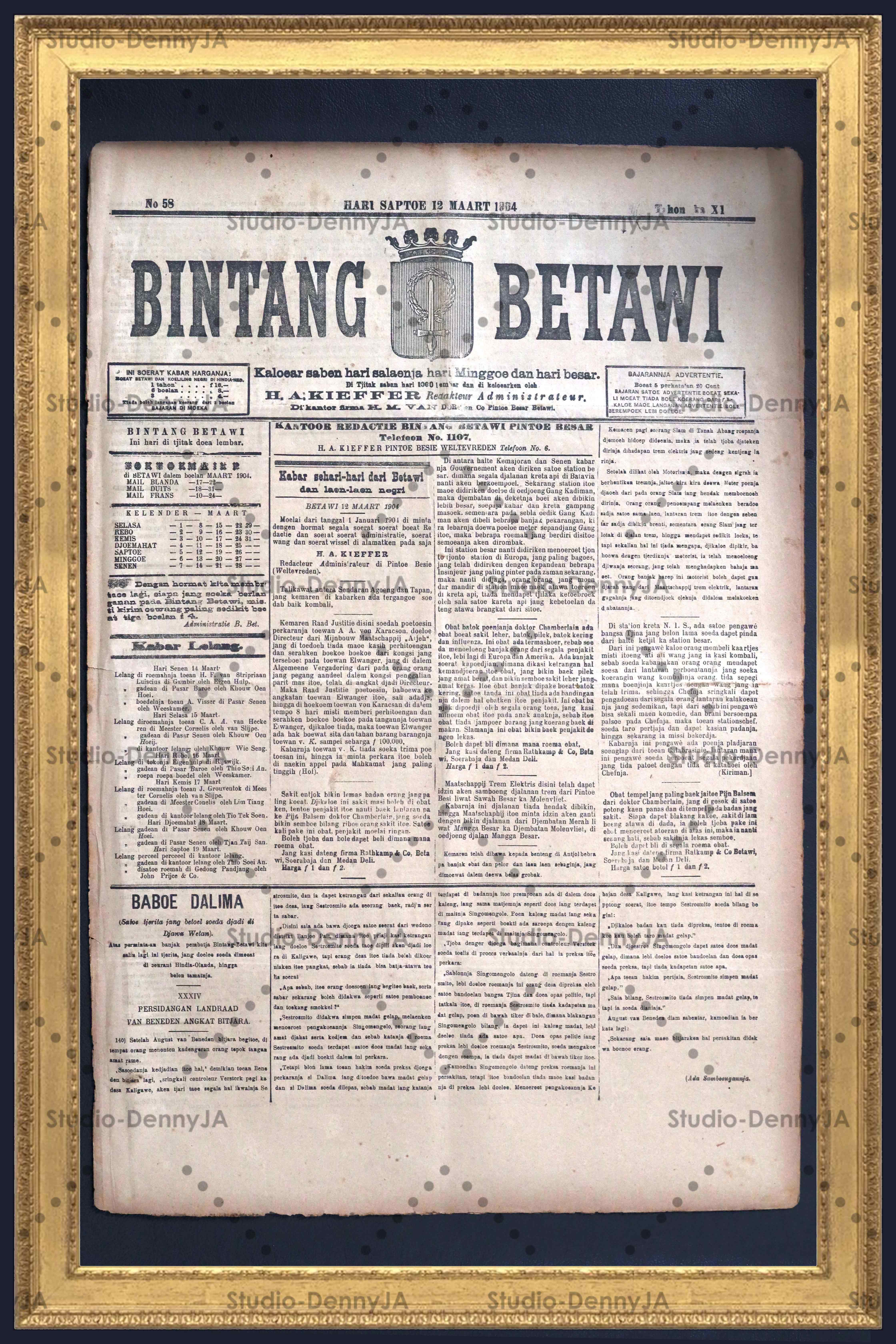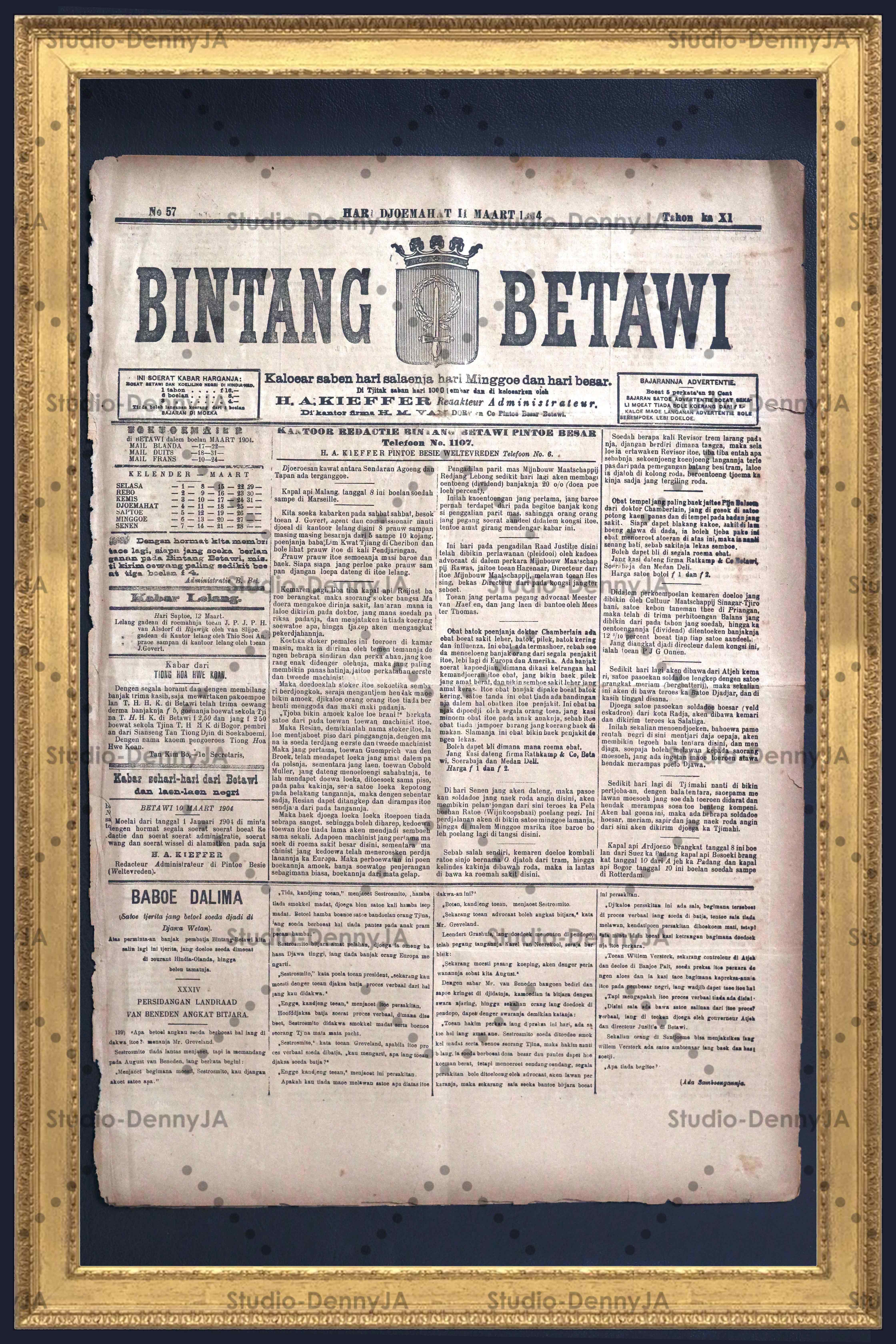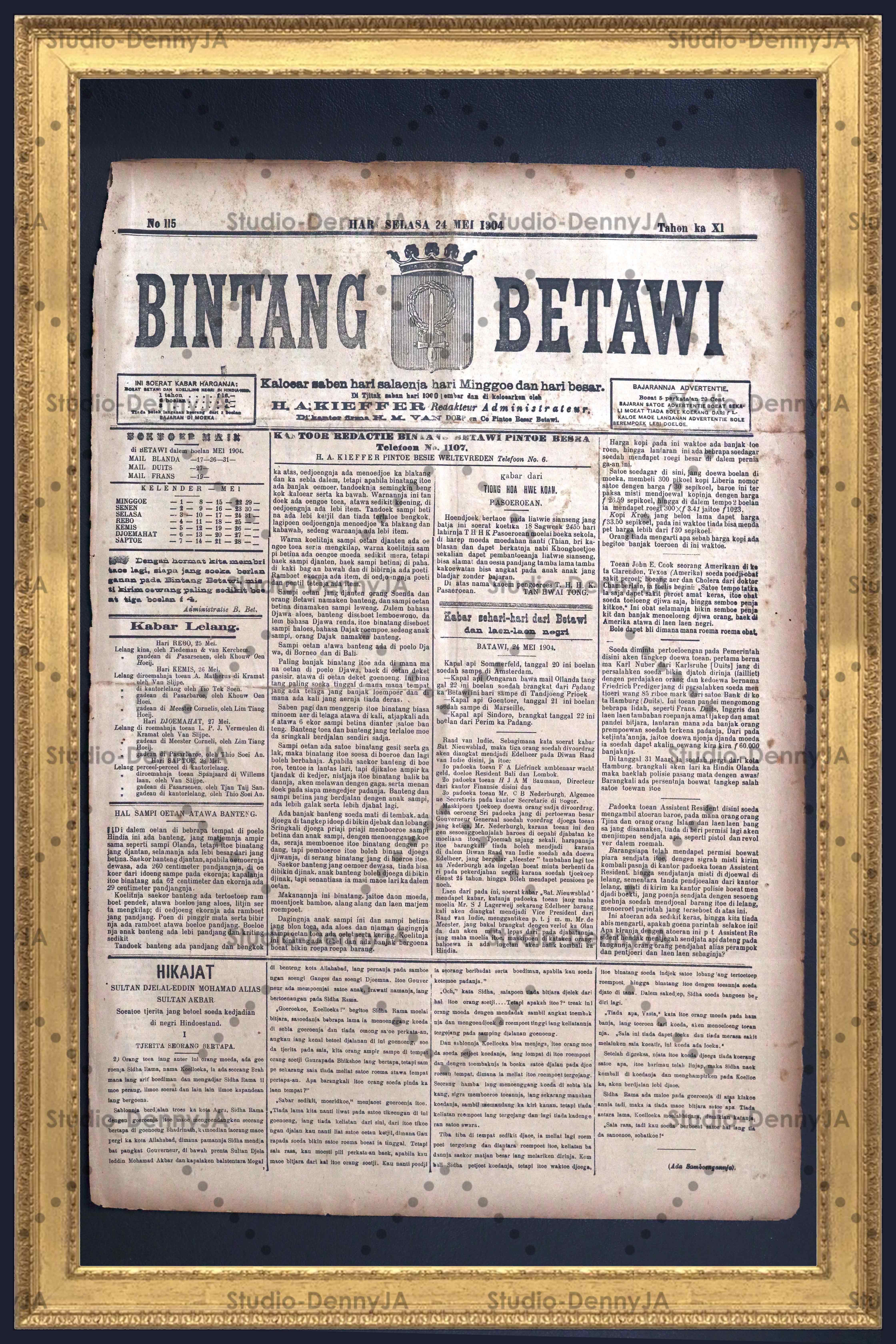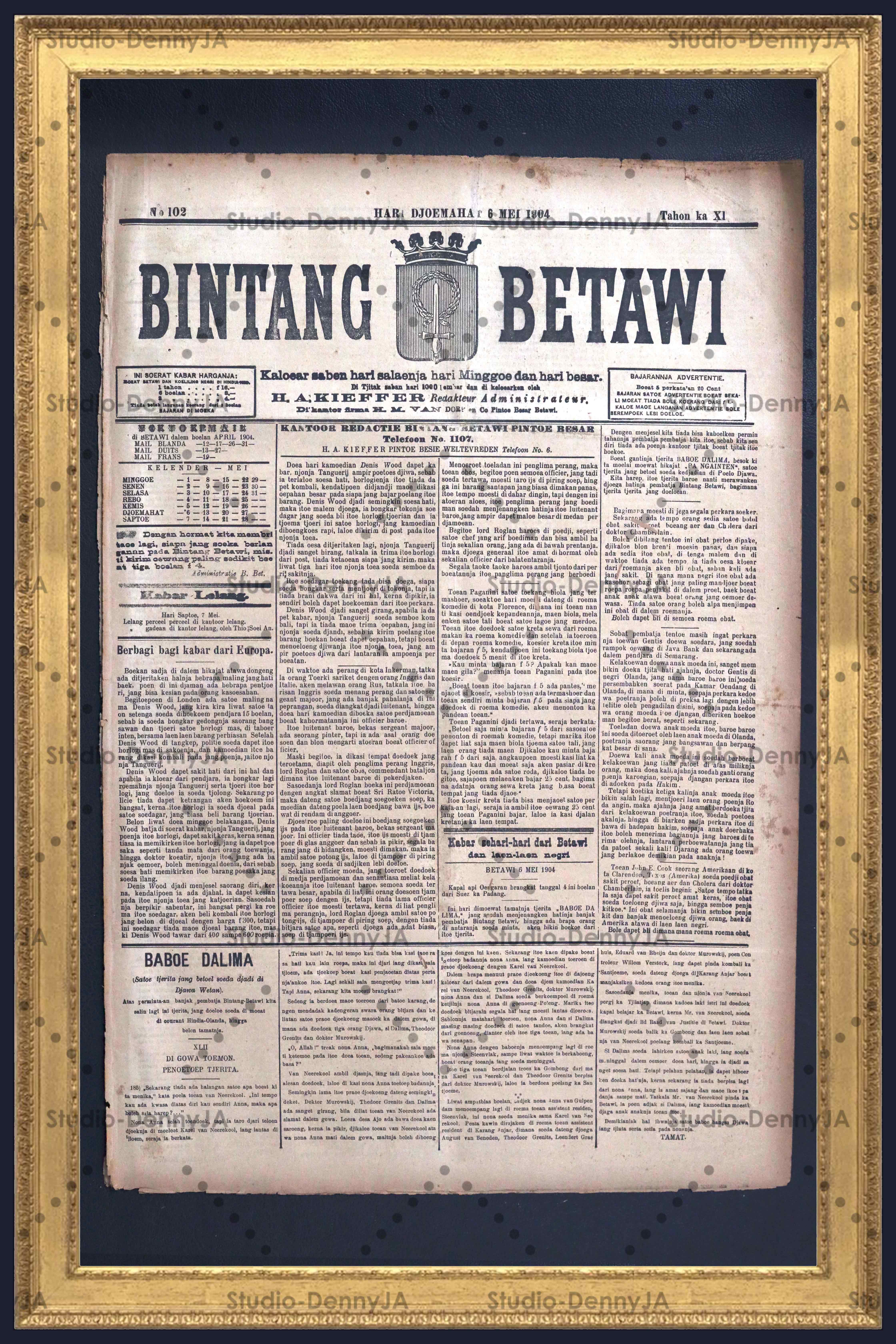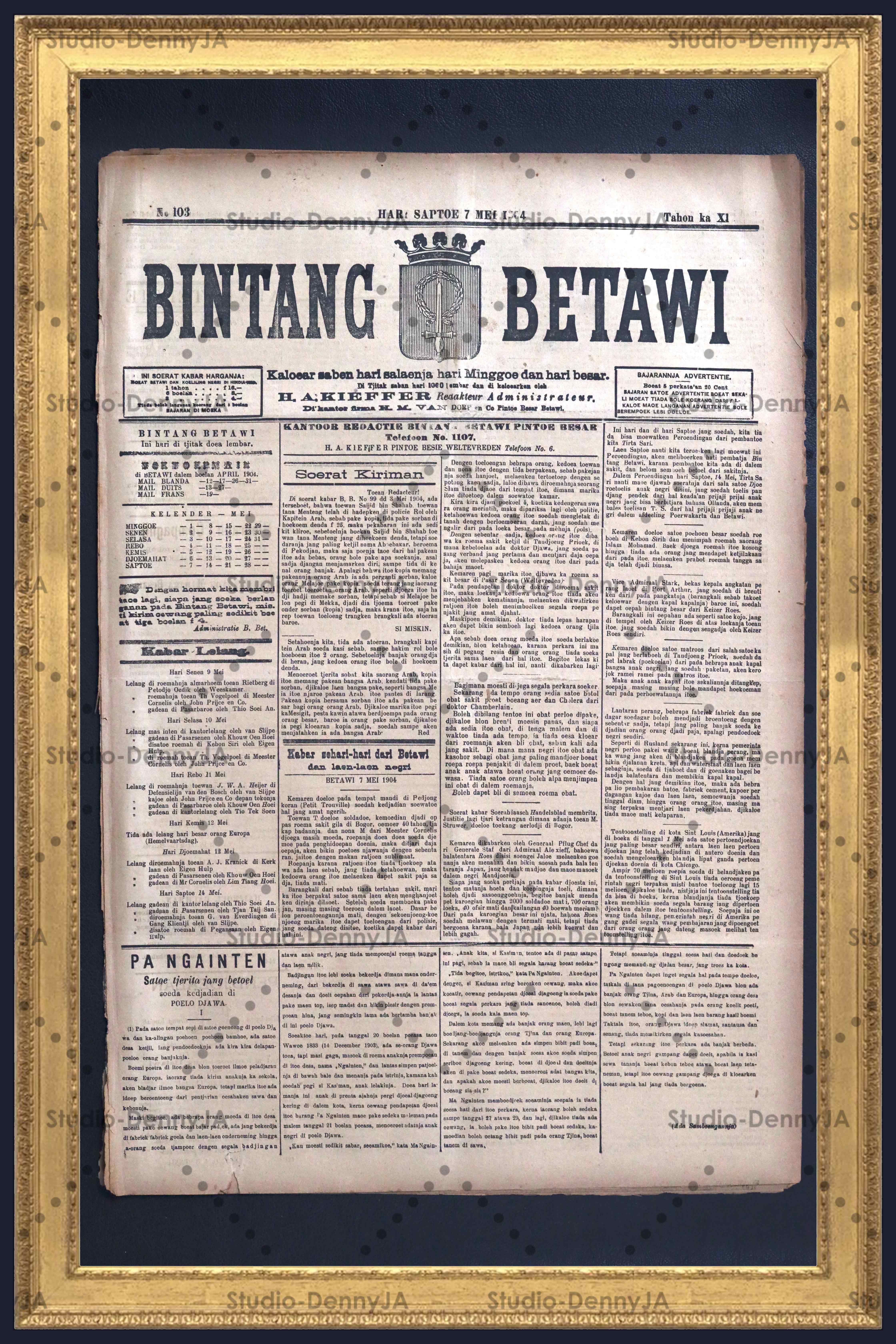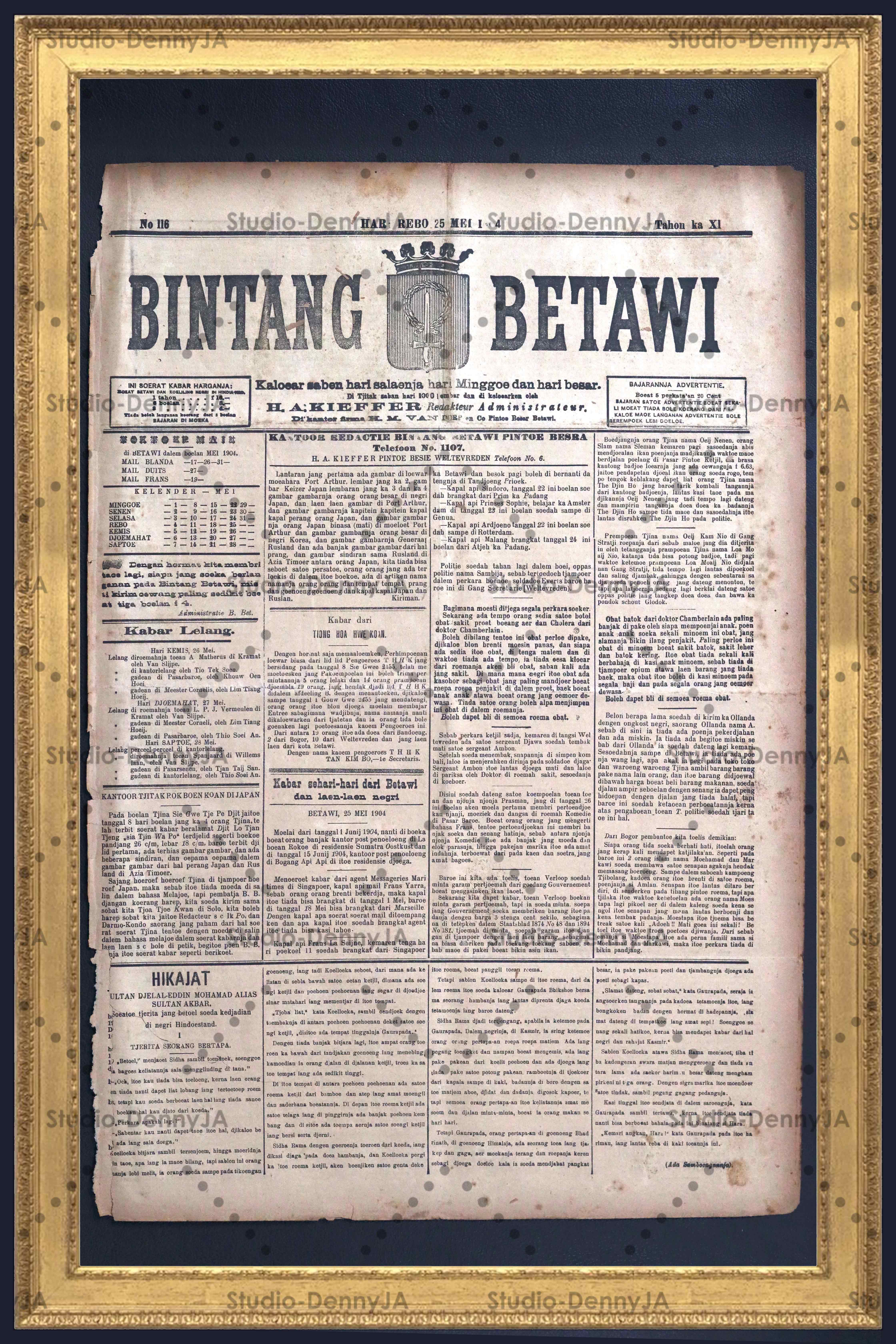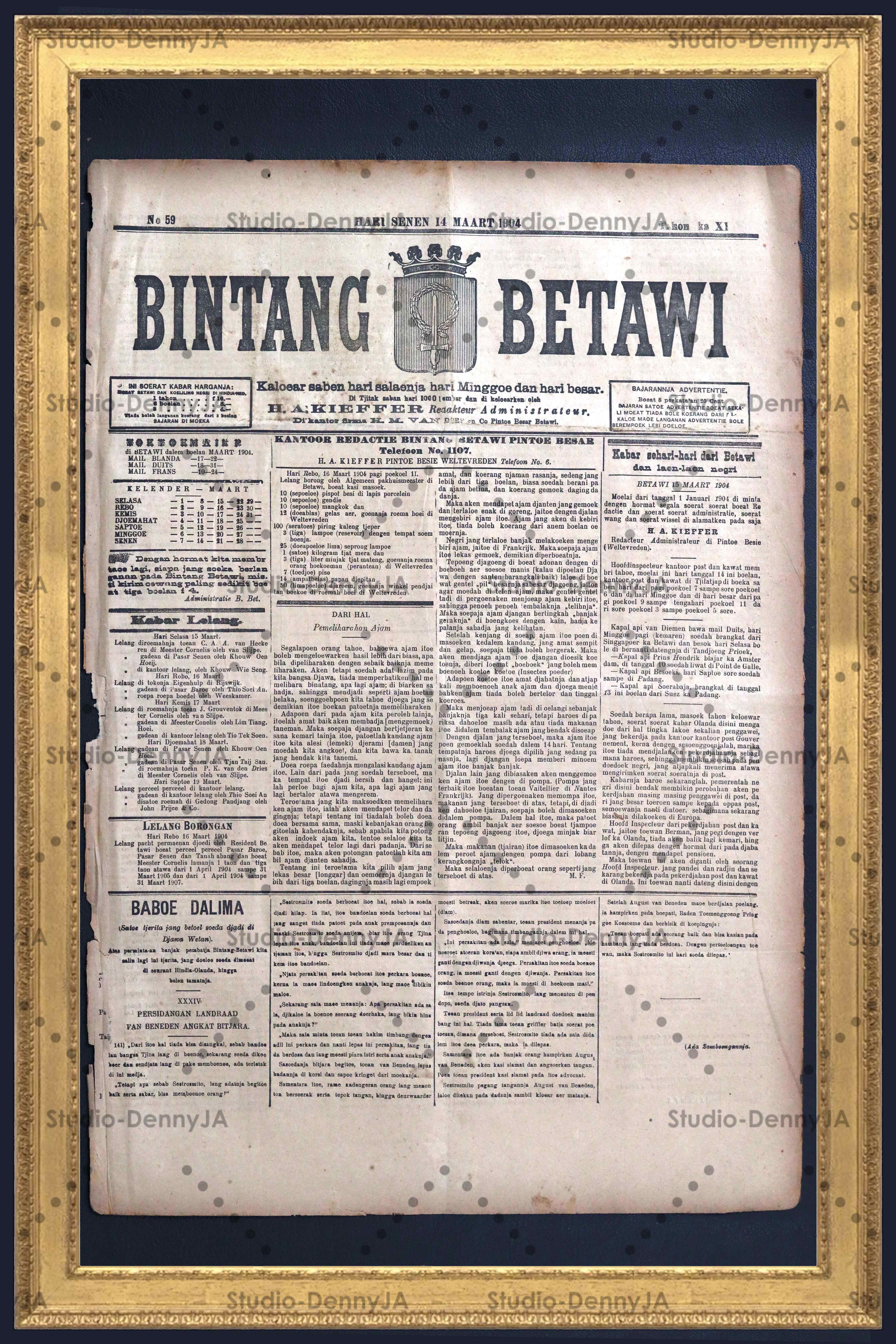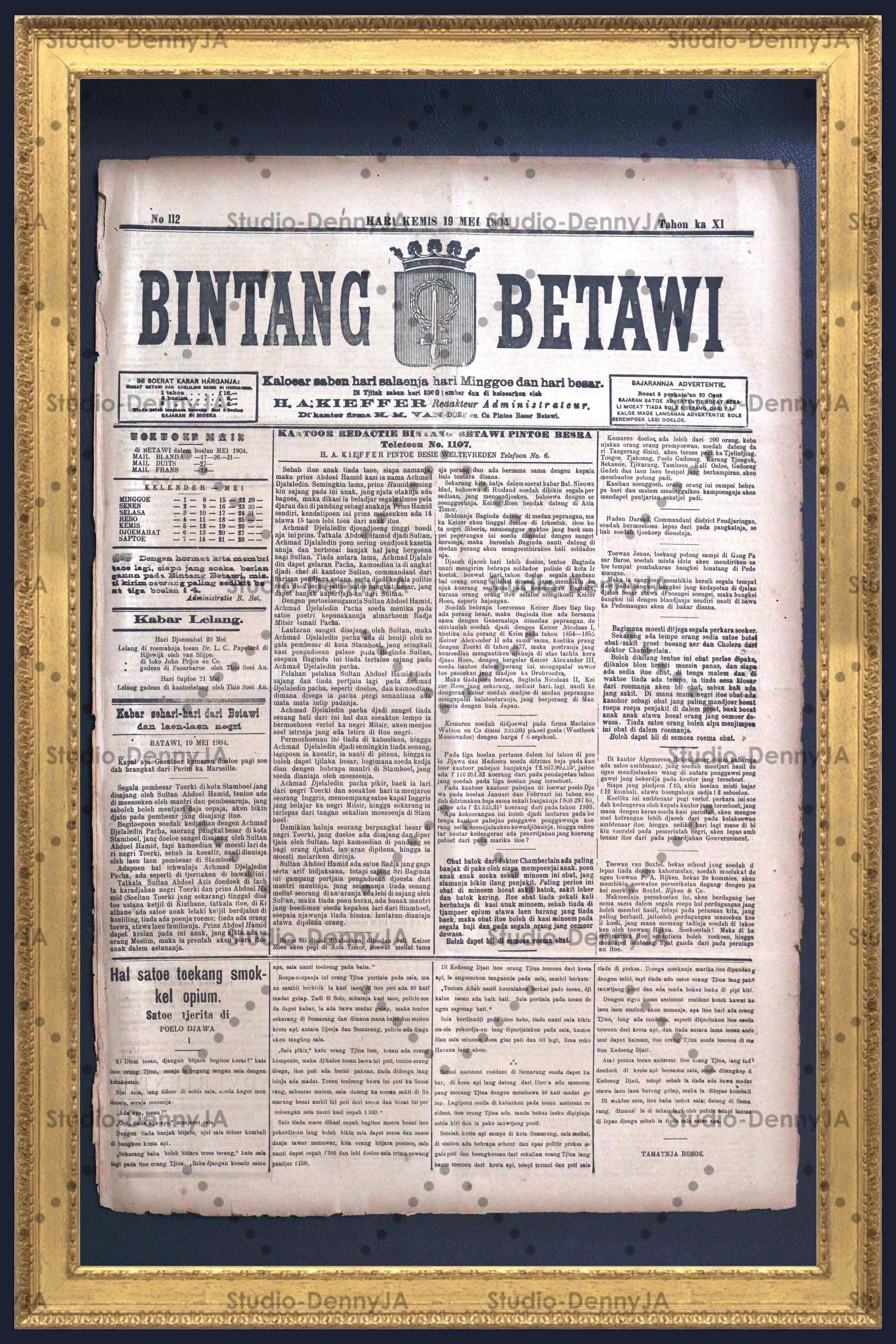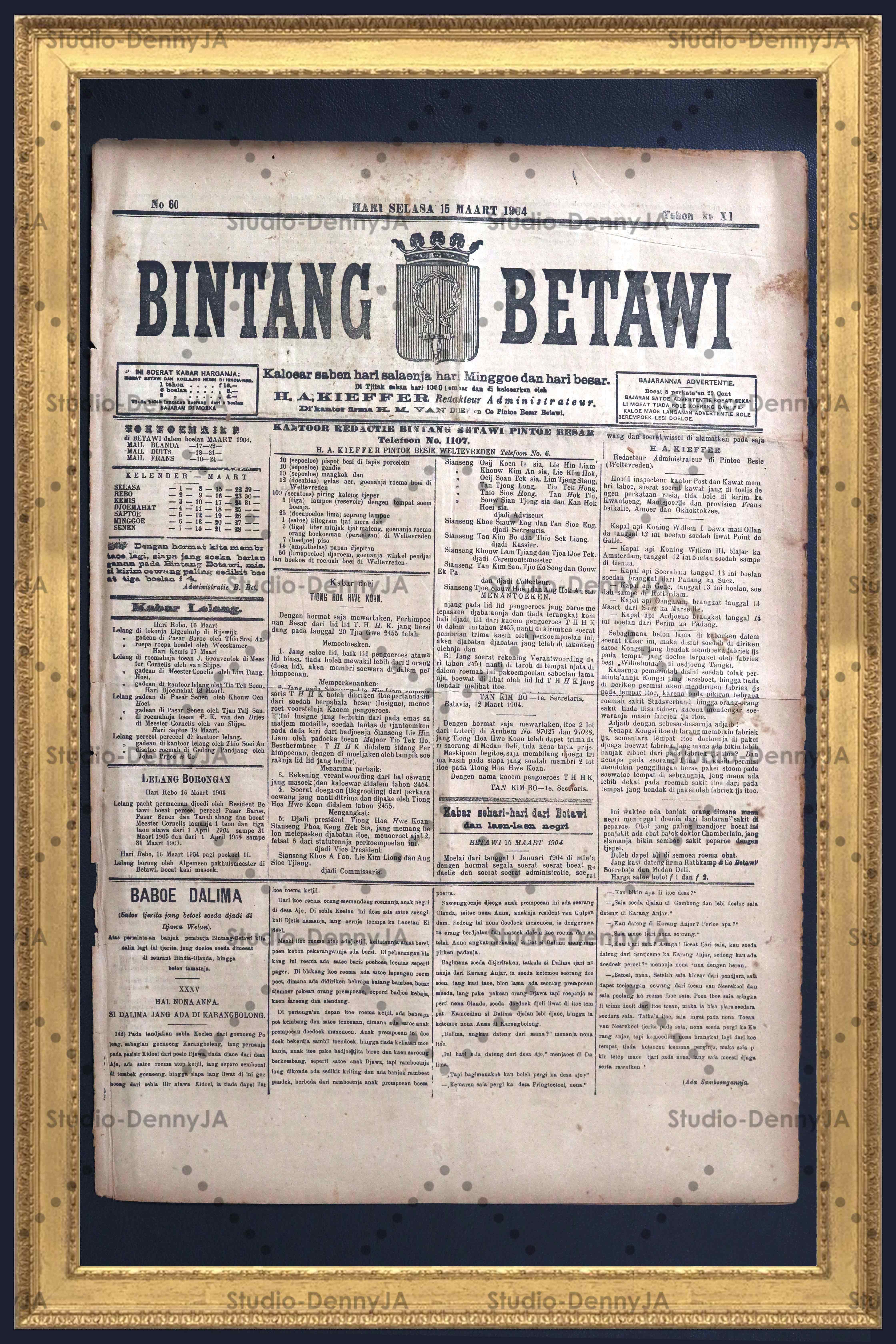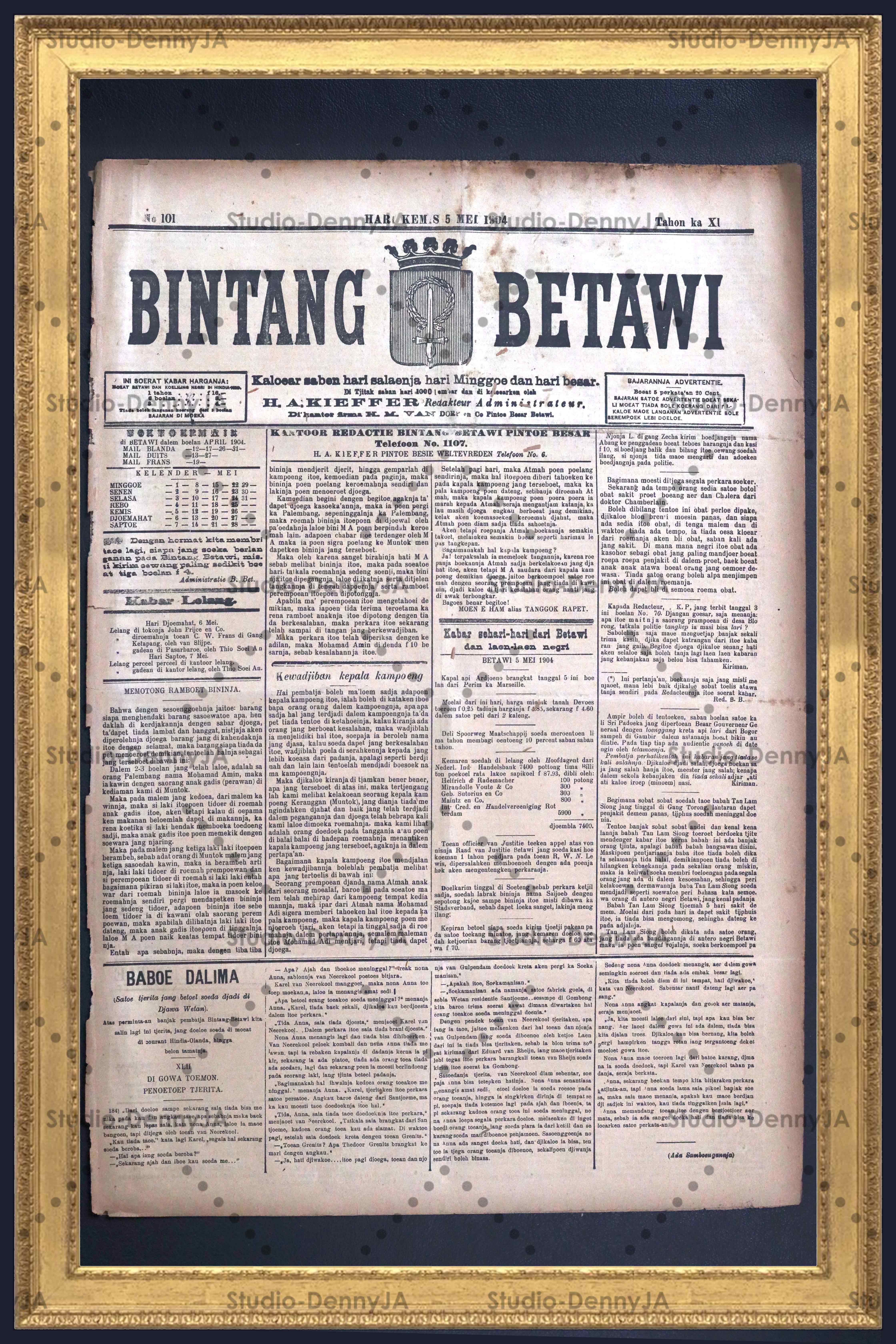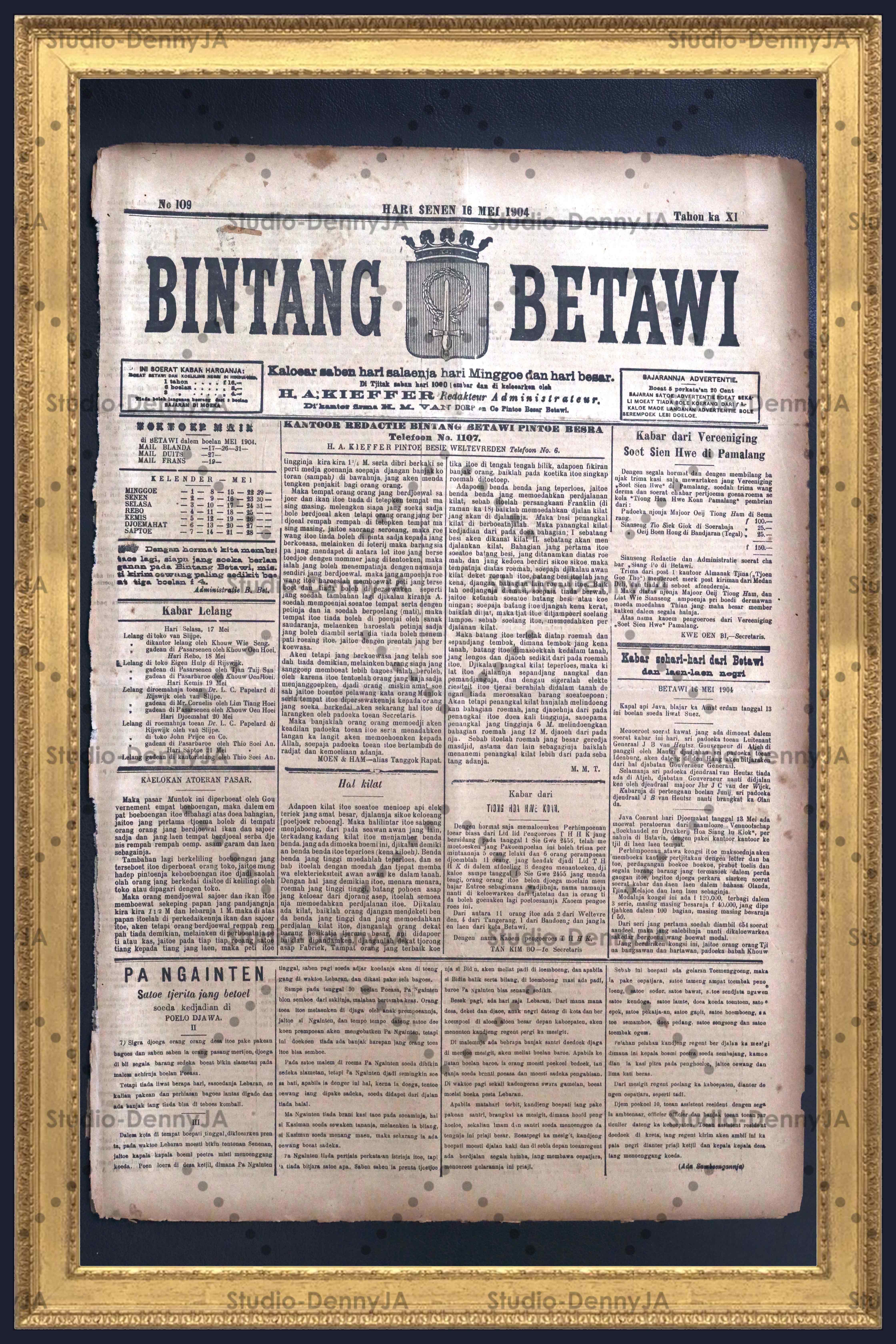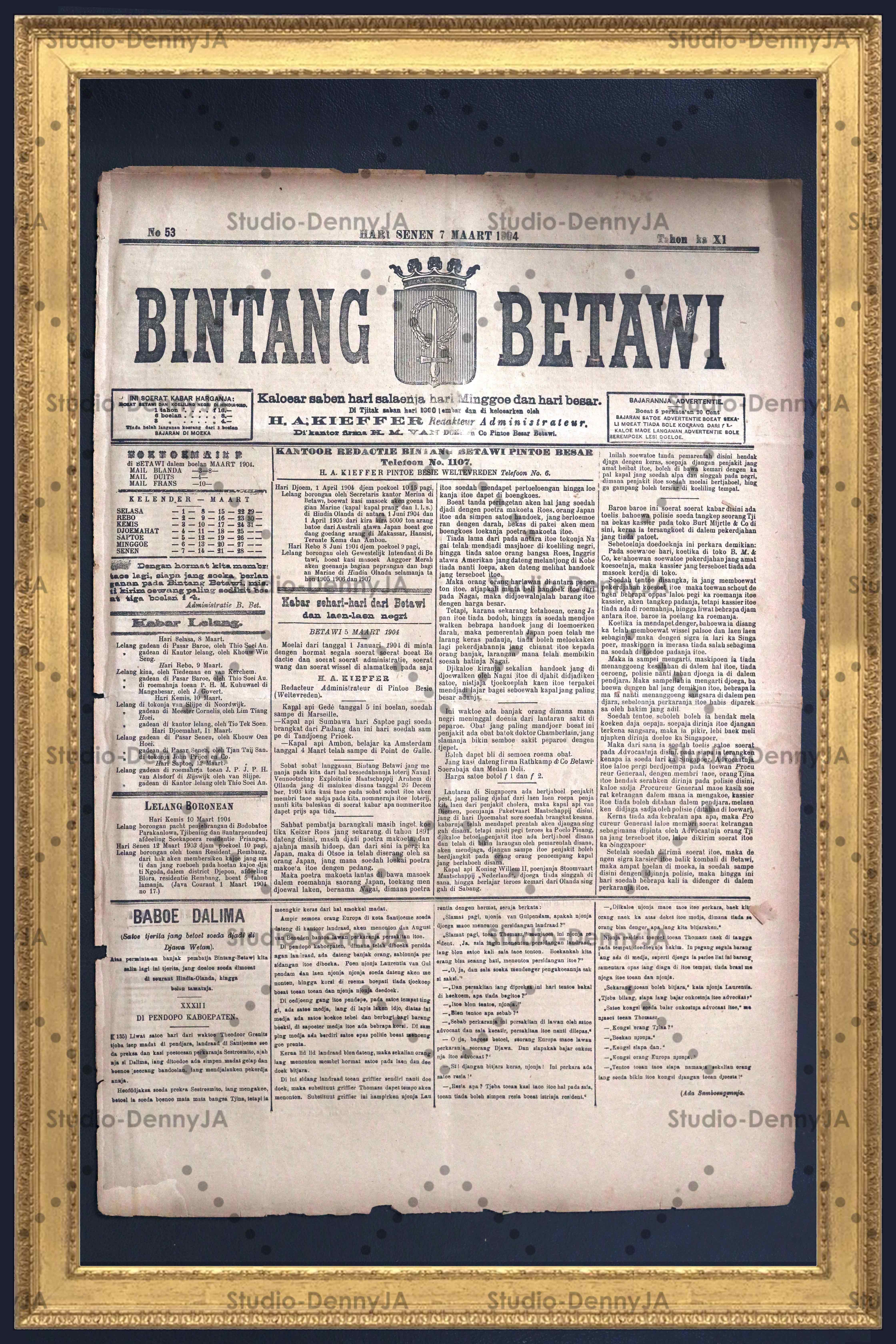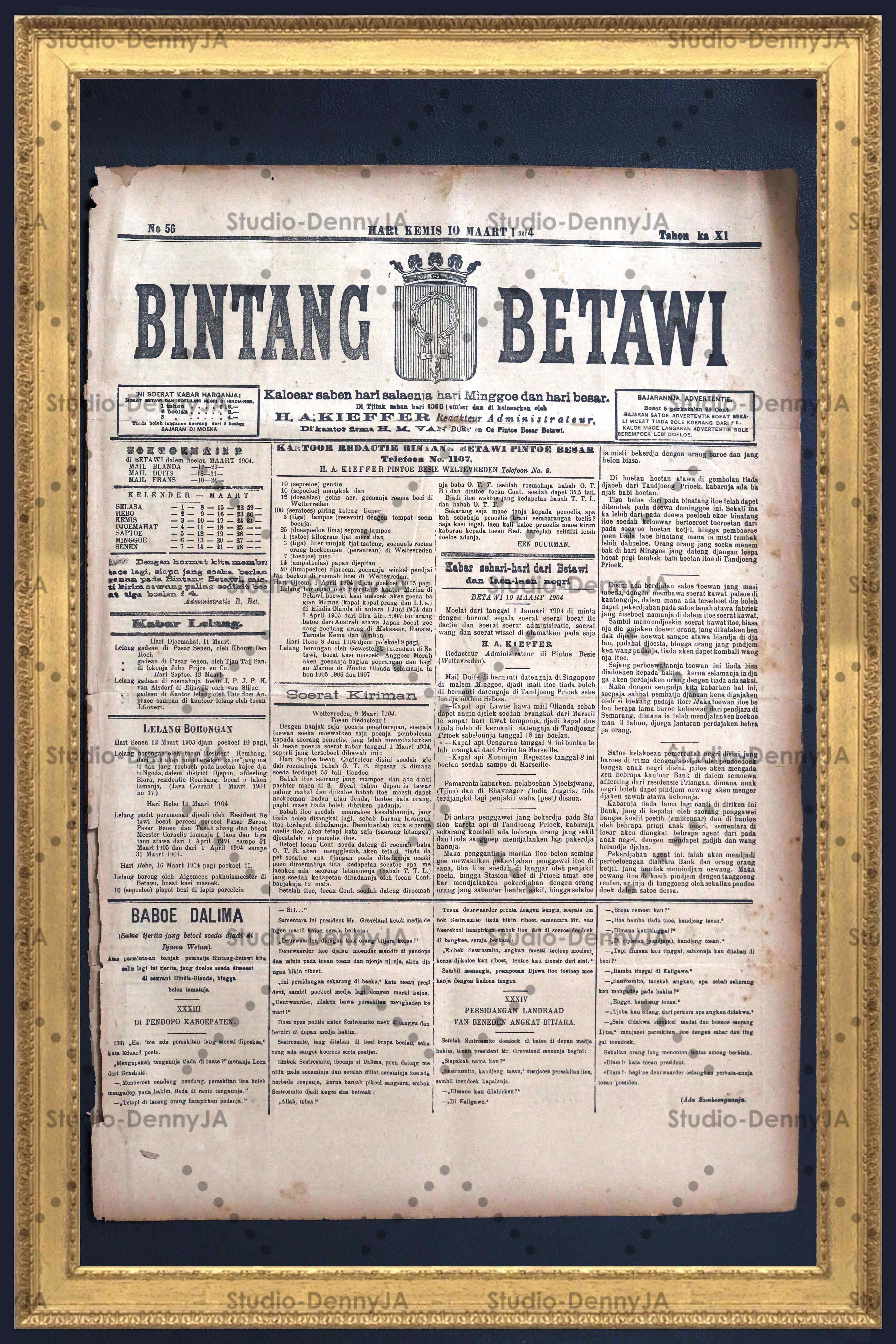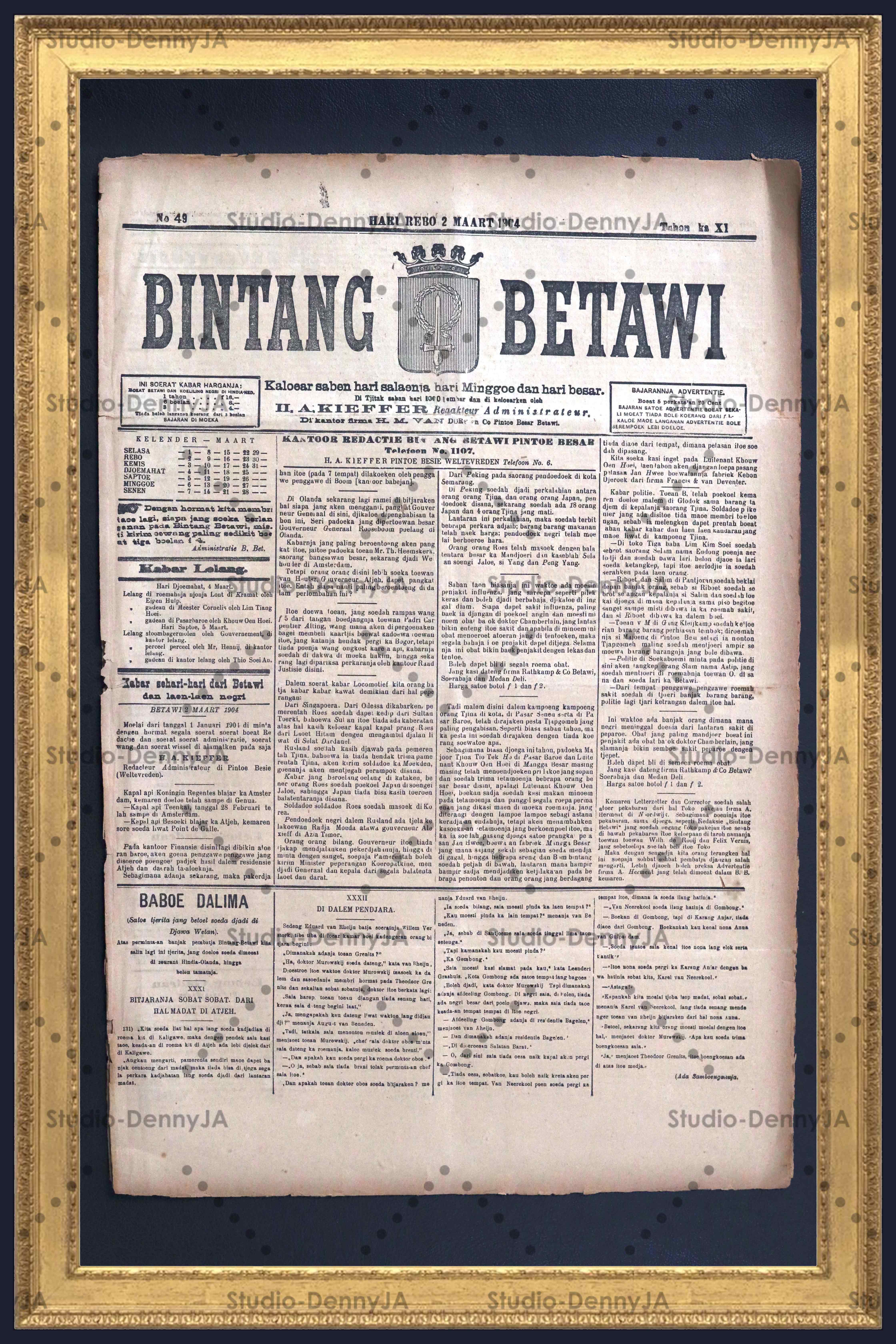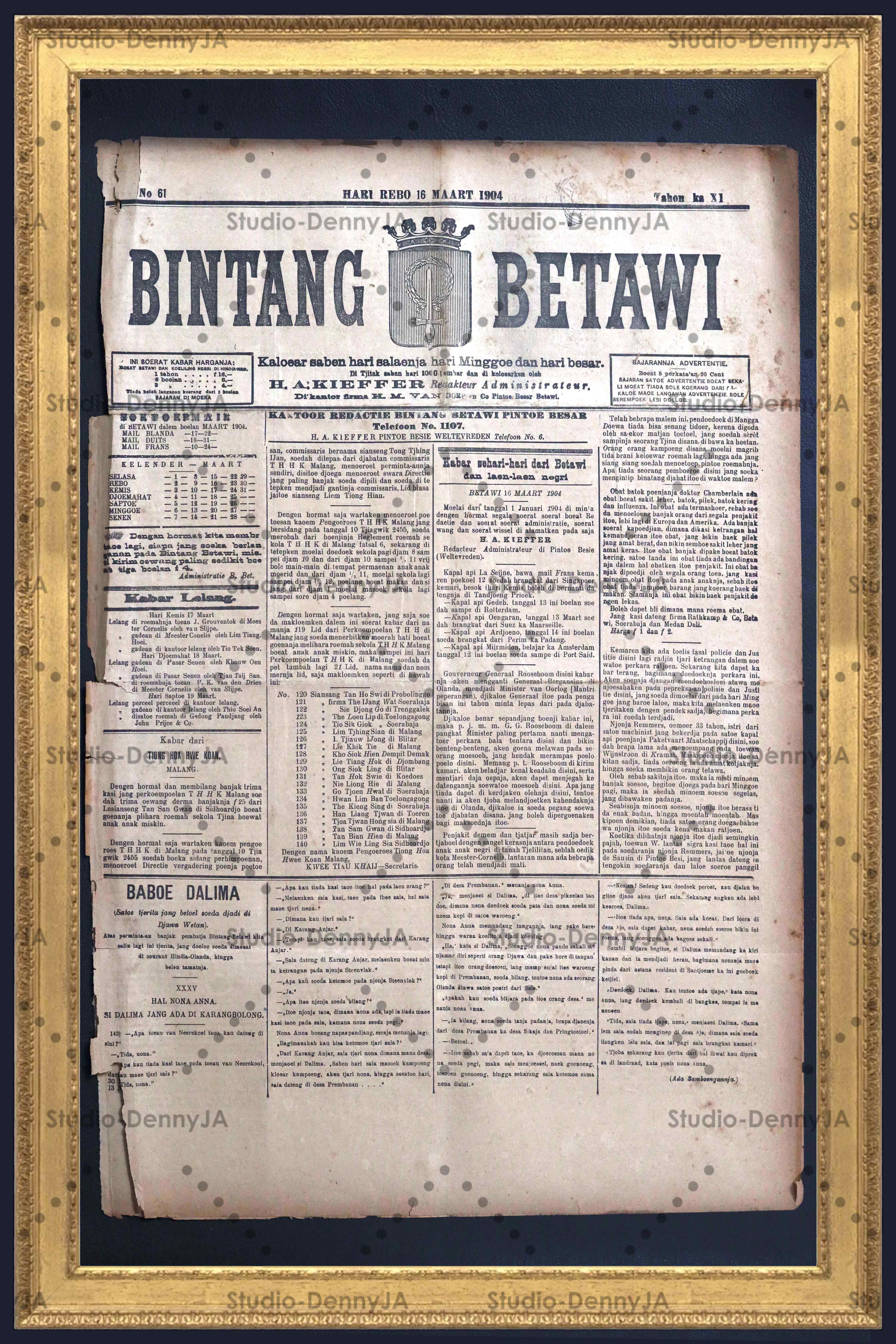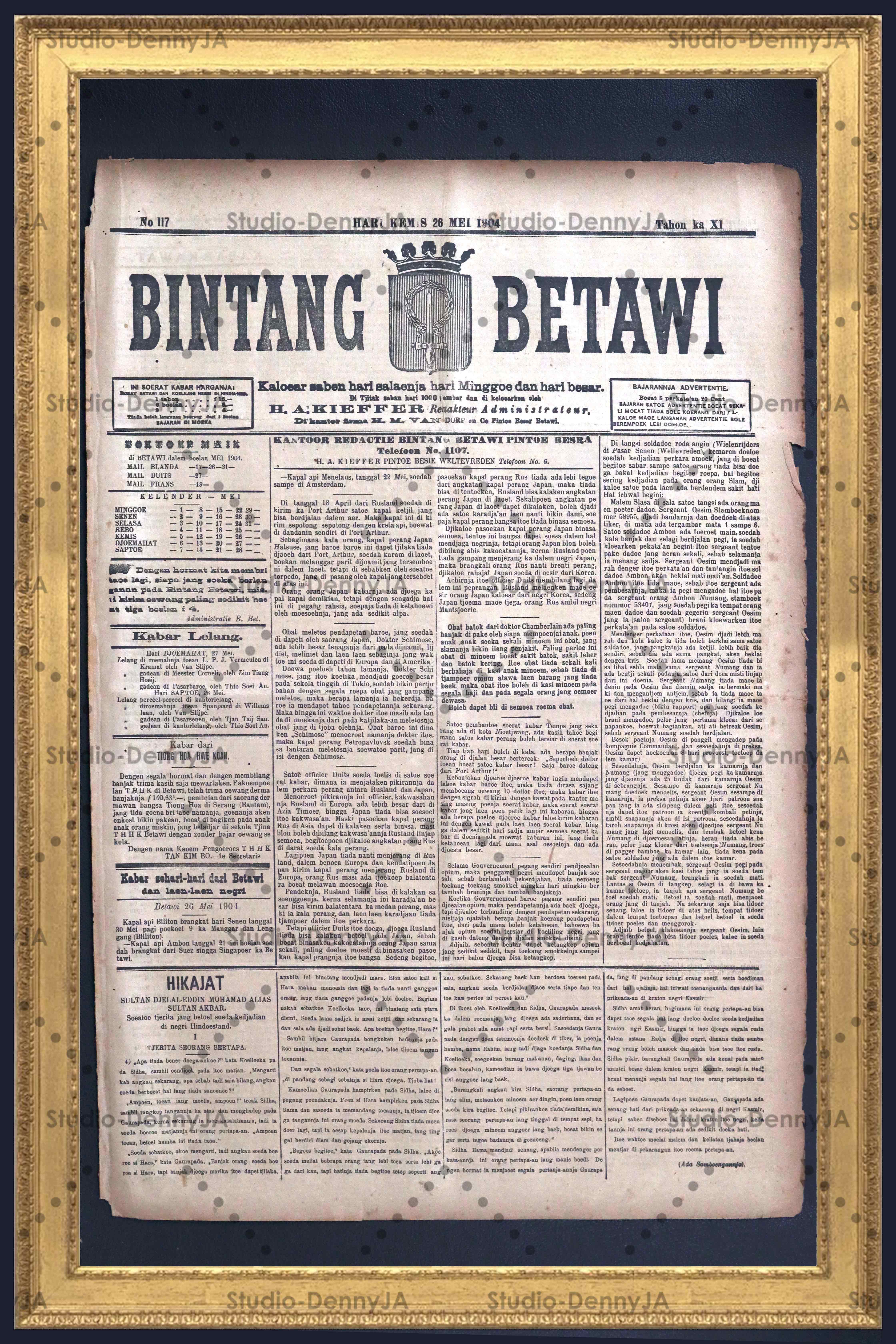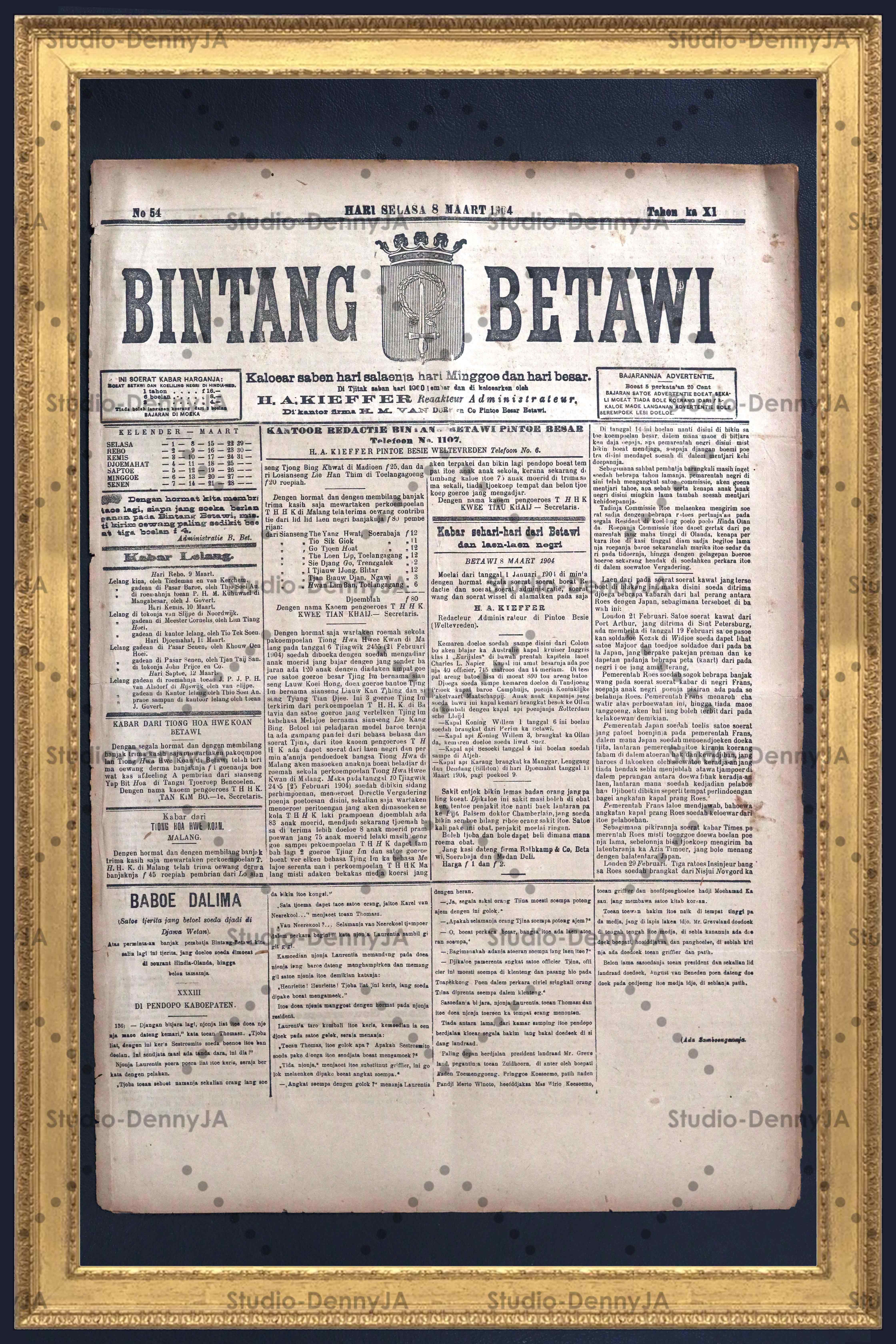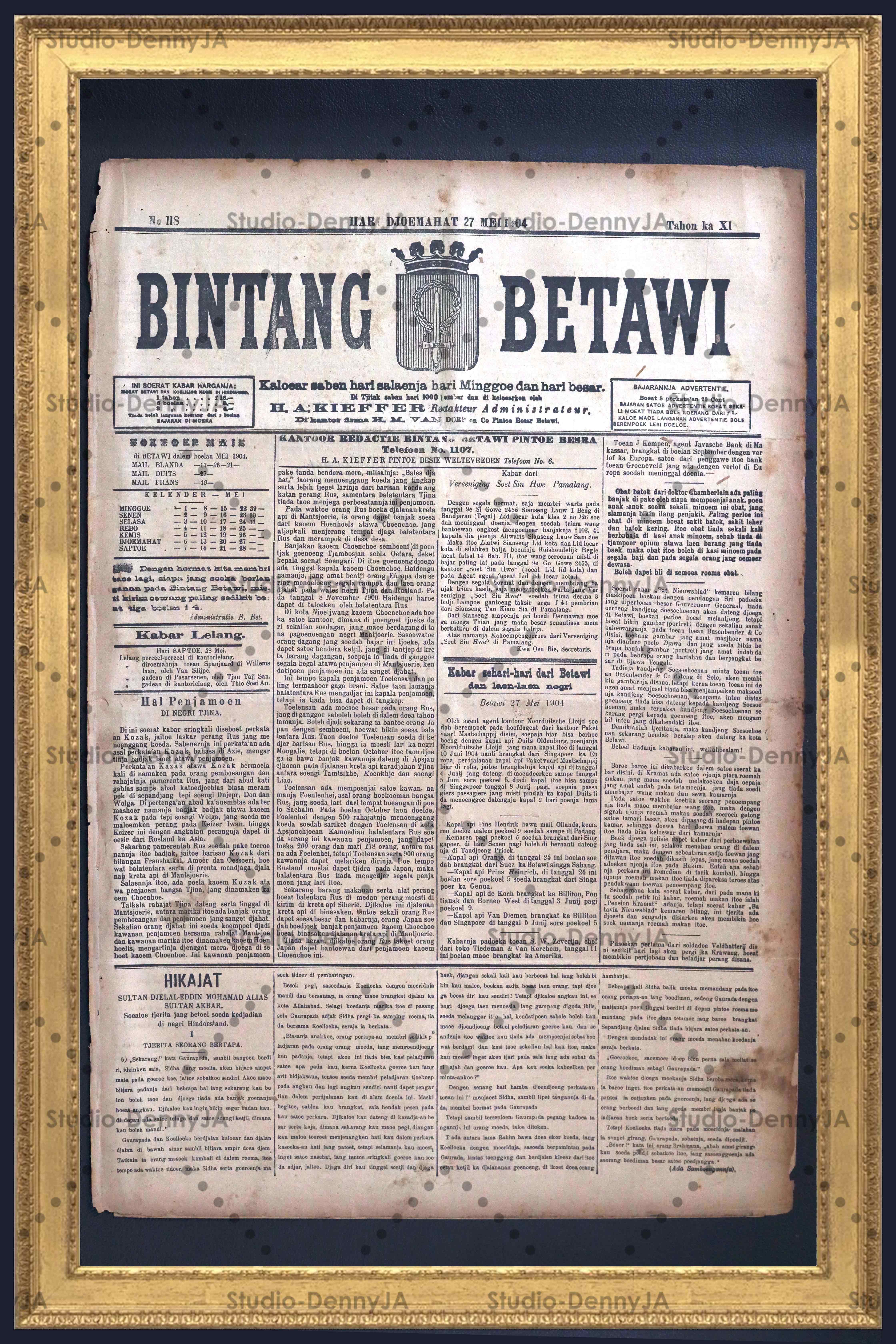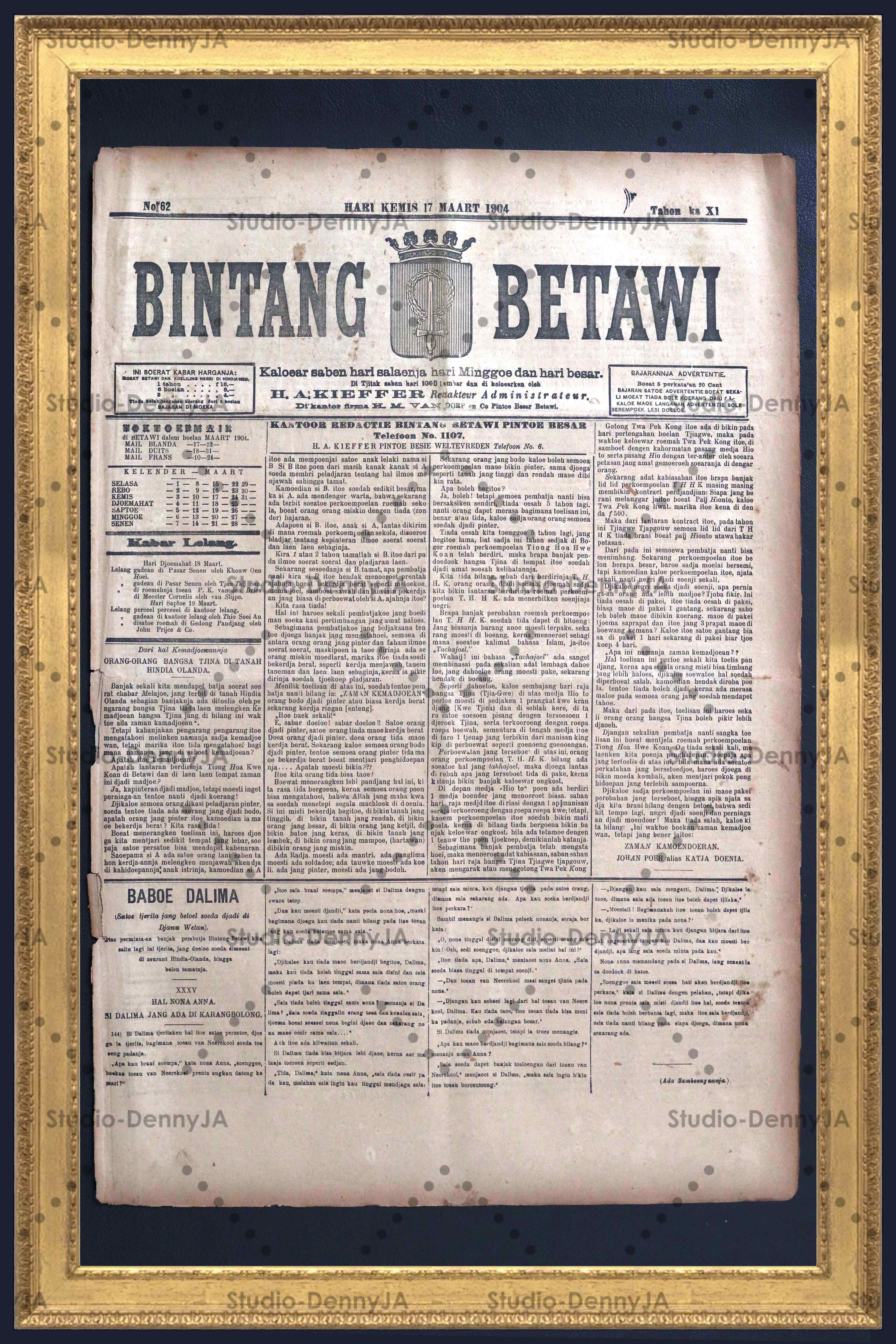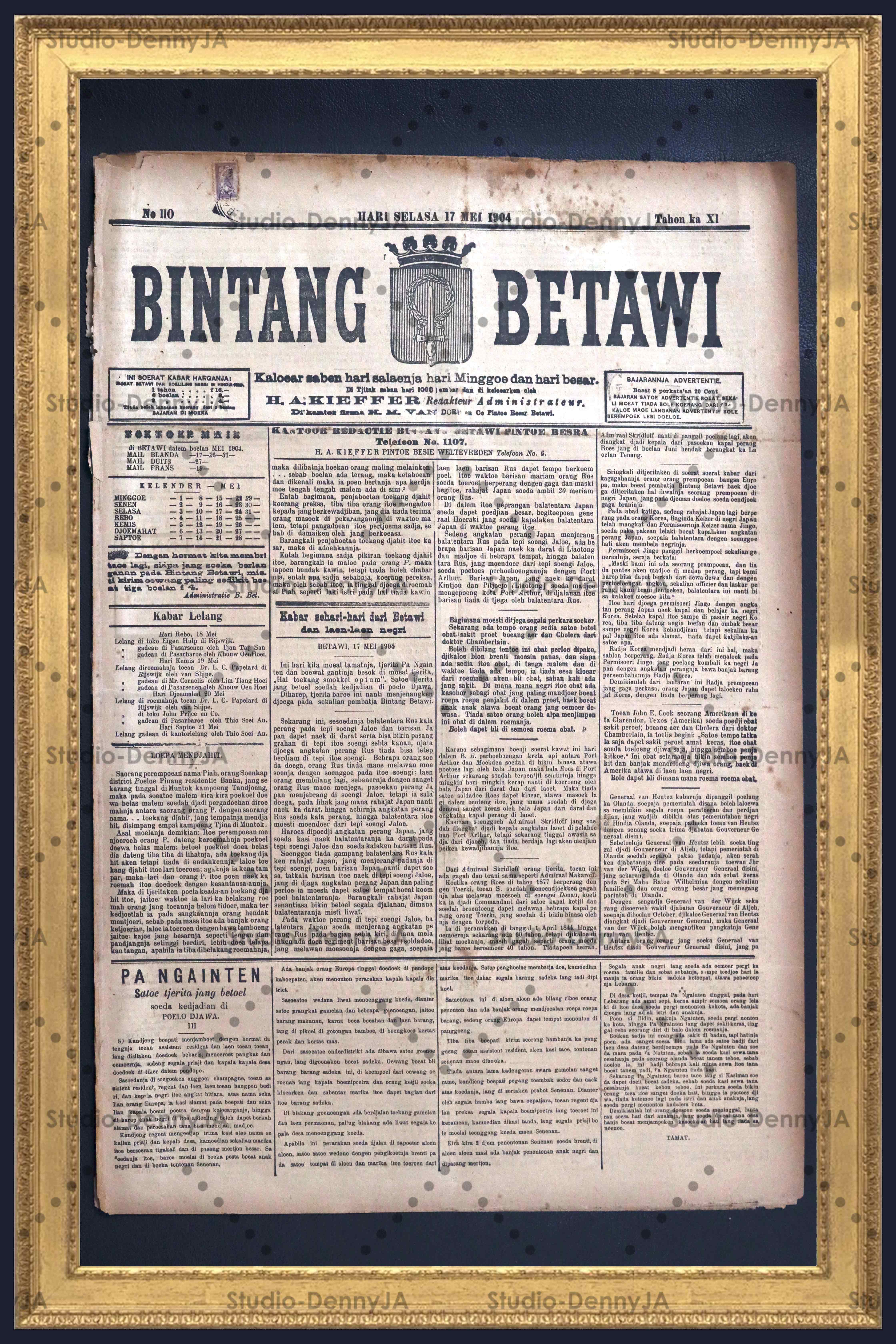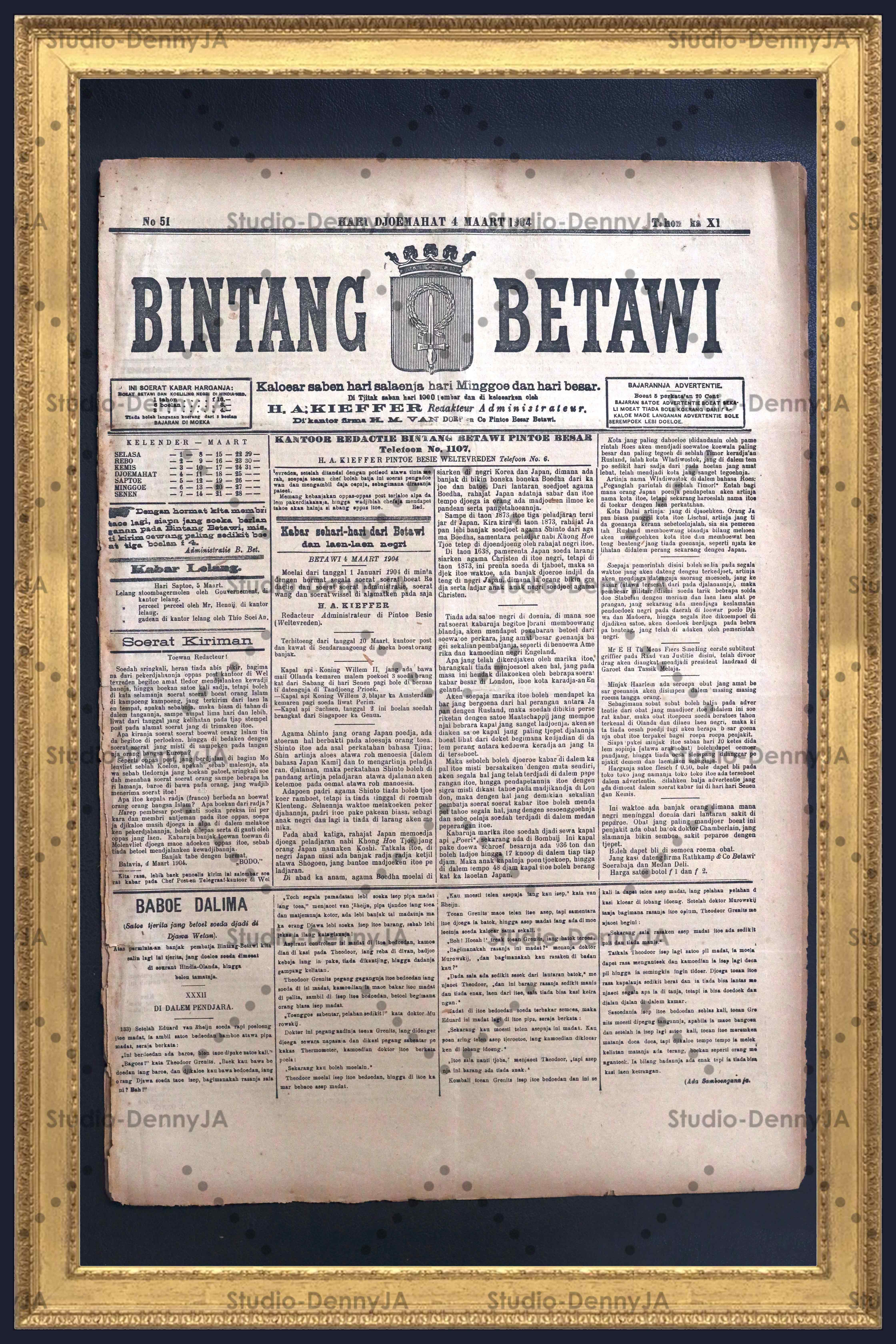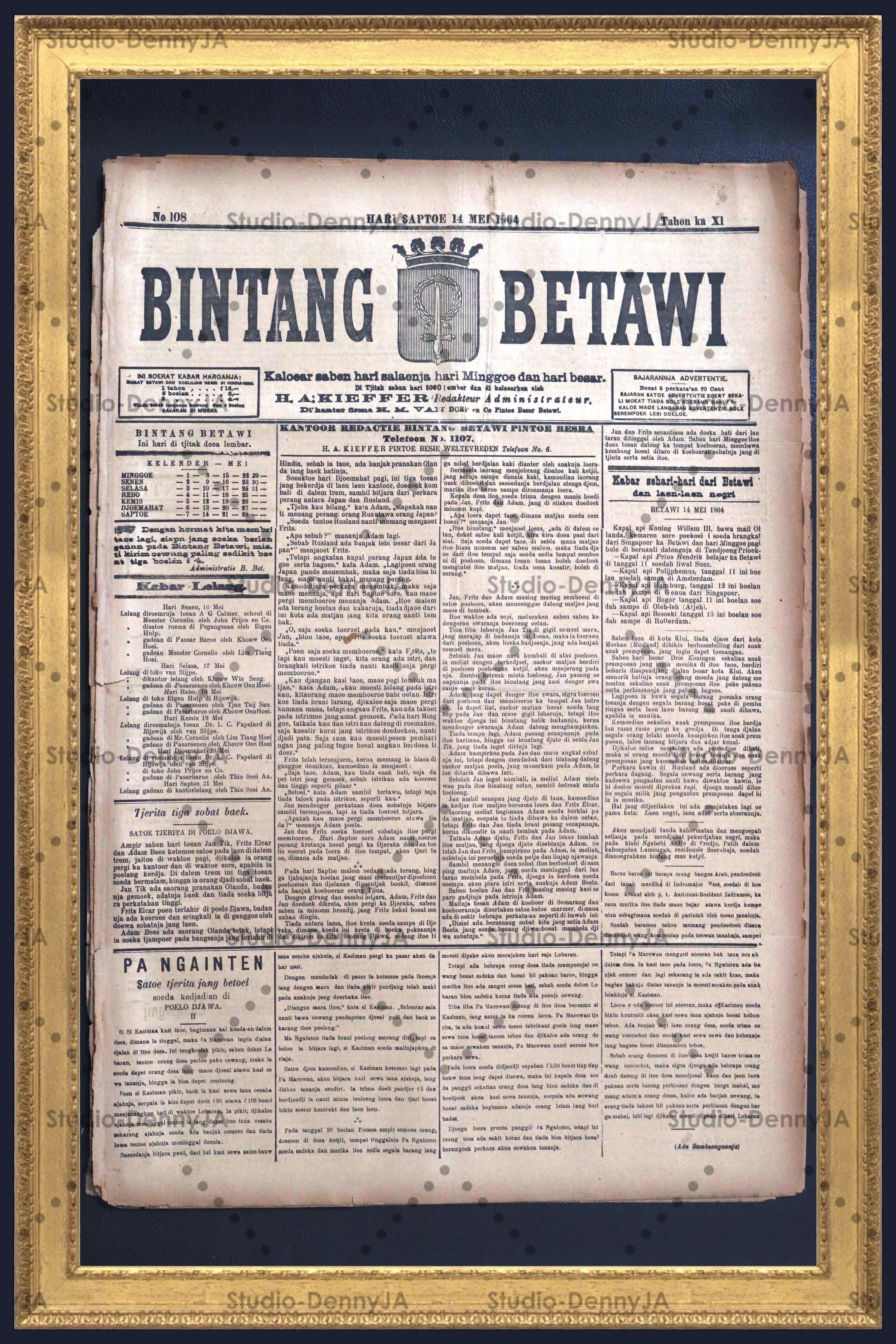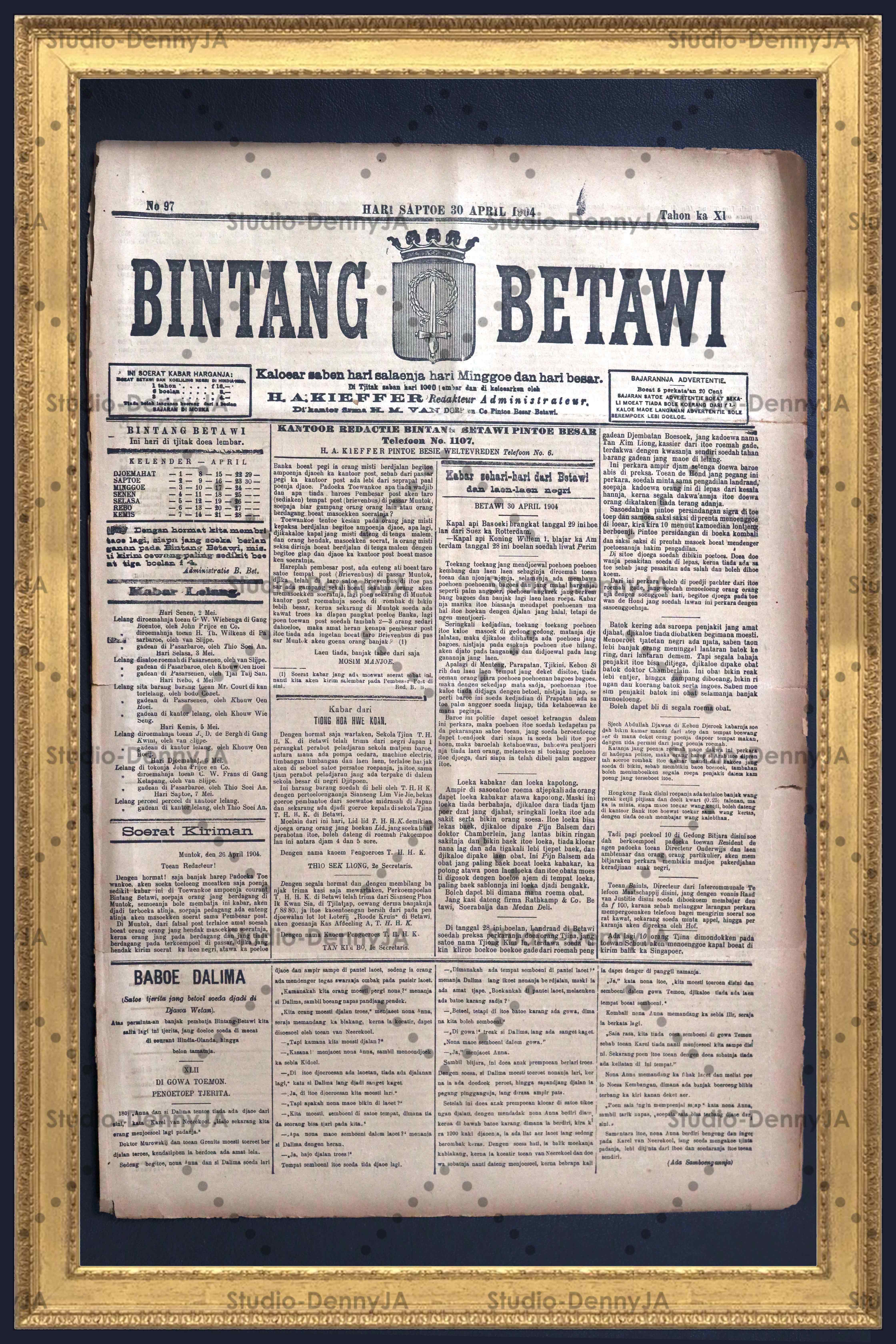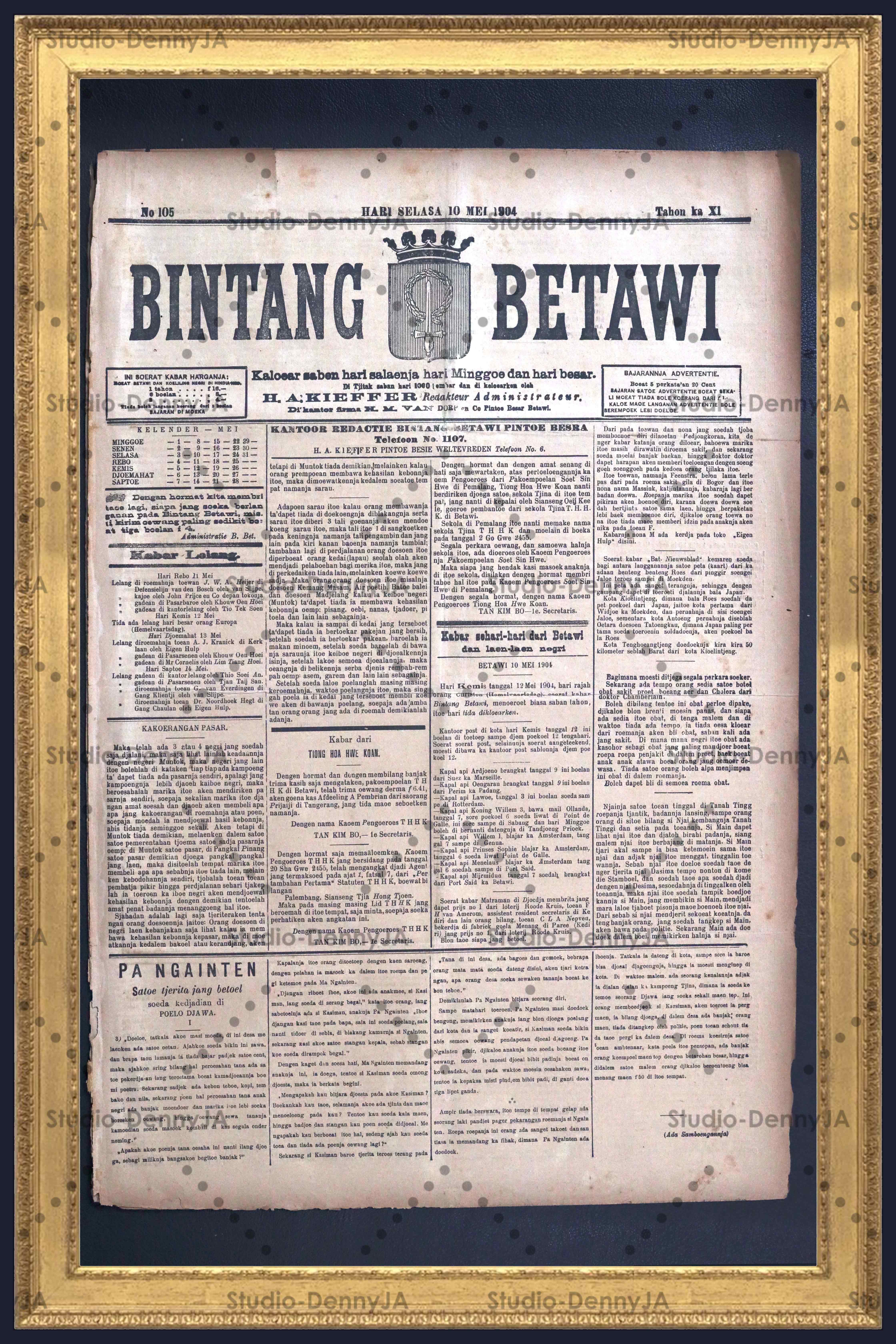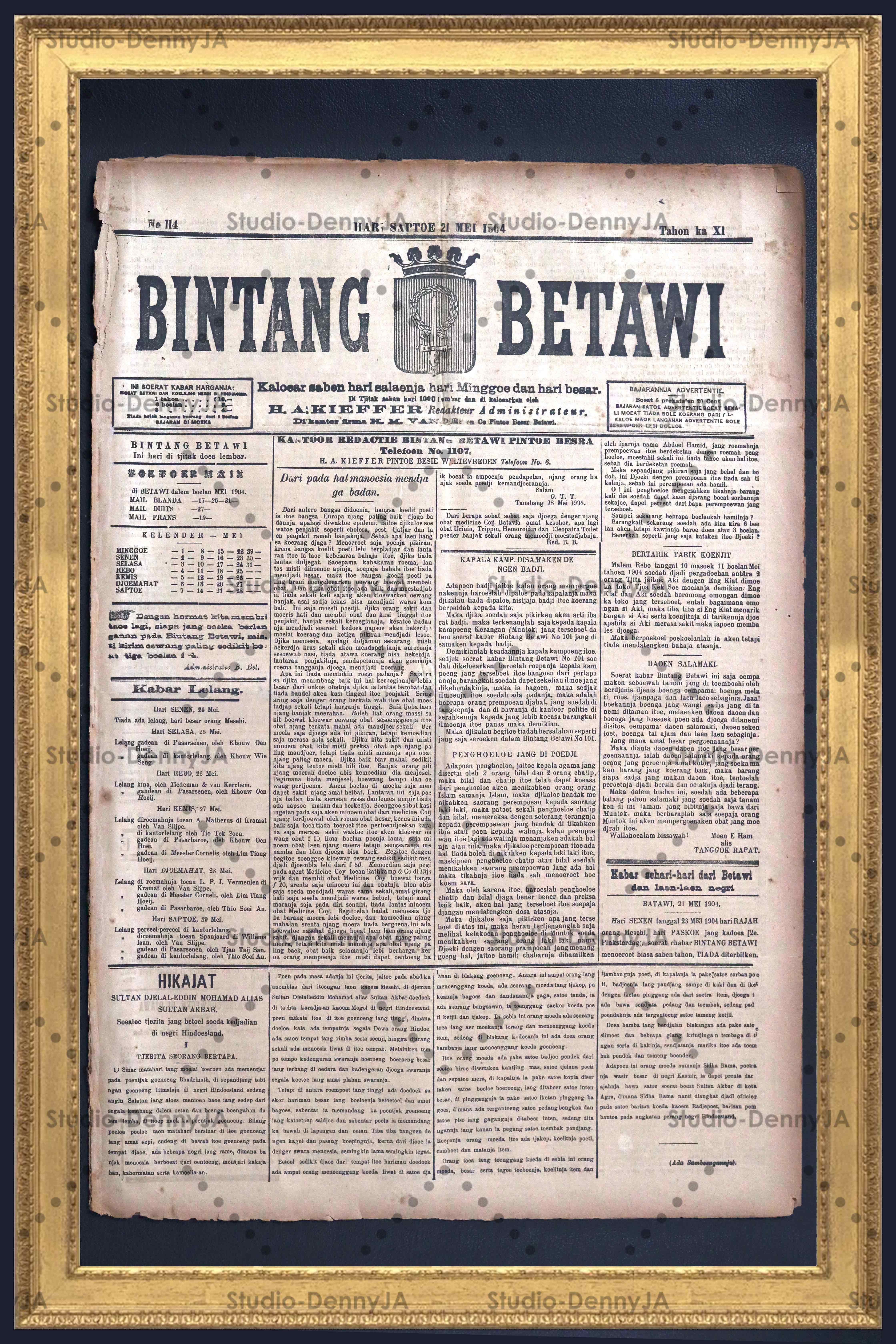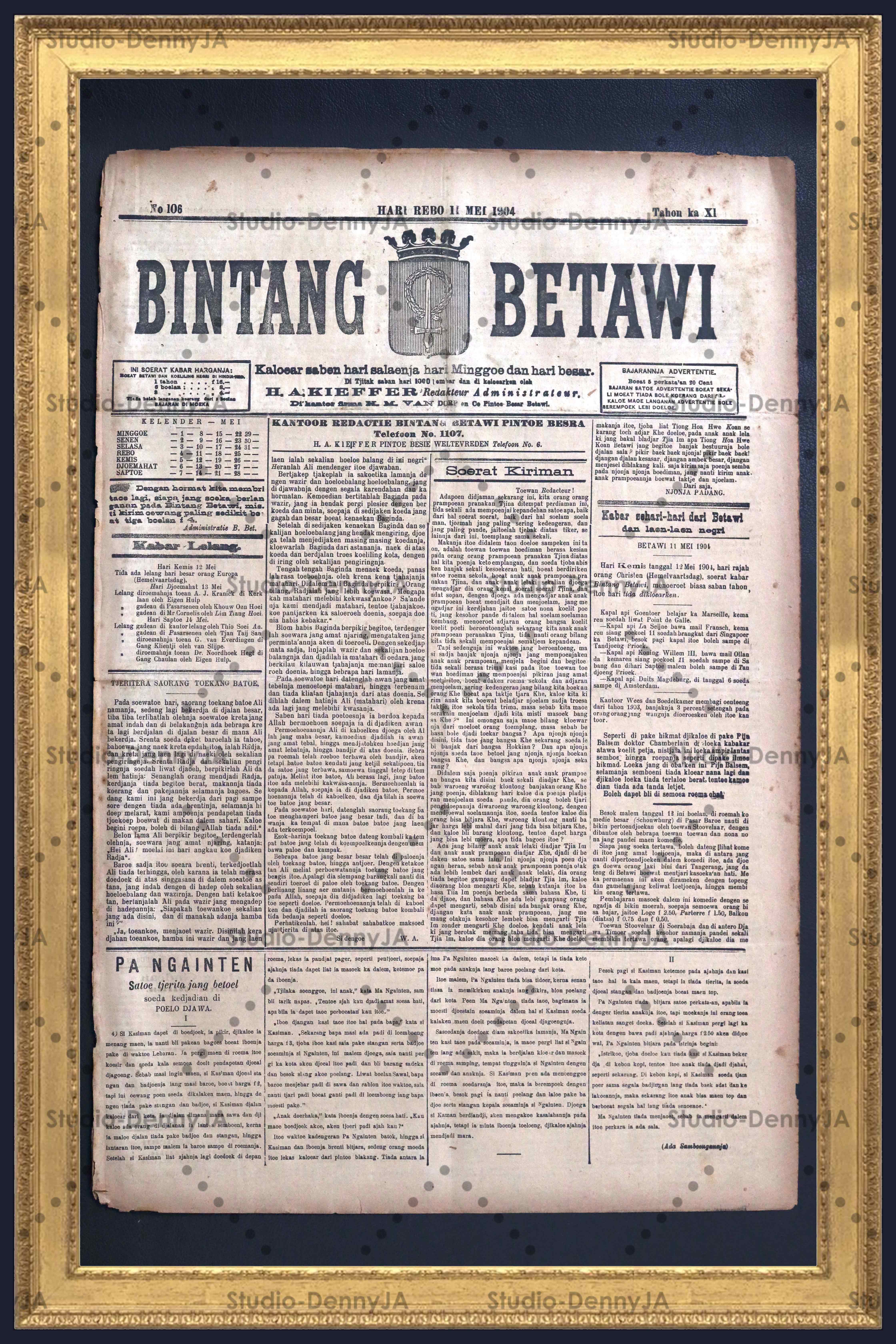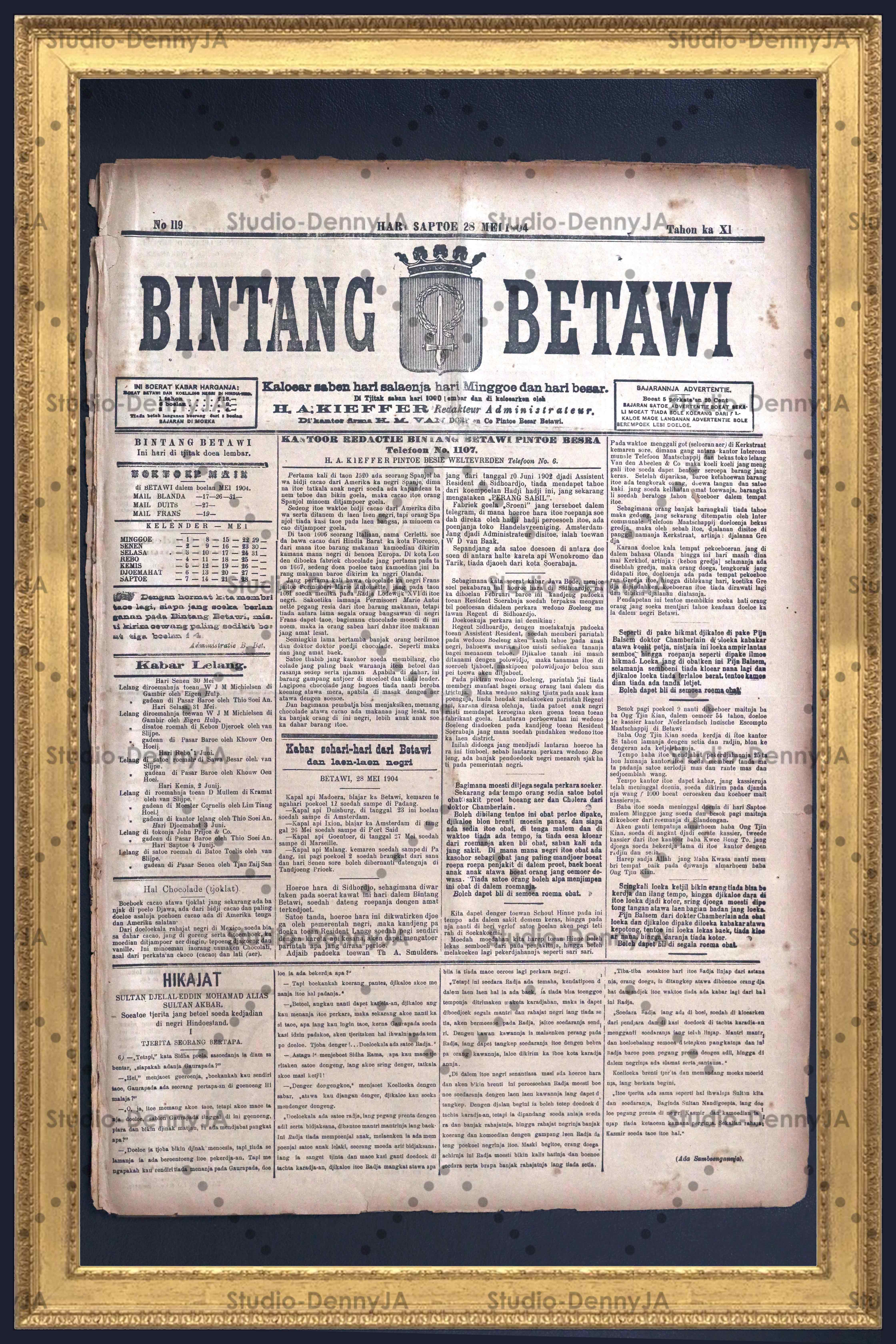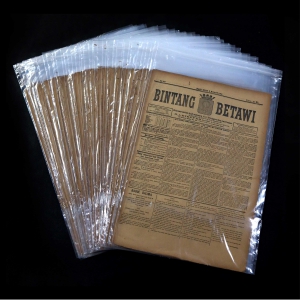
Legendary Newspapers Denny JA Collections
Bintang Betawi - Batavia (Jakarta)
by JJ Rizal
Bintang Betawi first published in 1893. The publisher was J. Kieffer H.M. van Dorp & Co in Batavia and published every day. Kieffer is the leader of the weekly Bintang Barat newspaper and is renowned as the only non-parochial newspaper in Batavia for readers of all races and religions. He was an Indo (mix European descent) born in 1835. Prior to publishing and being the editor of Bintang Betawi until his death in 1904, he was an editor in the Dutch East Indies, in addition to being the founder and publisher of Pemberita Betawi in 1884 and the editor of Bintang Barat in 1888.
E.F. Wiggers, a very prolific Indonesian writer and
seasoned journalist, joined Bintang Betawi, on 1893, after leaving Bintang
Barat. Apart from Wigers, at Bintang Betawi, other prominent writers
also have careers as editors, namely G.P.W. Francis who is famous for his story
The Story of Nyai Dasima (1896). Prior to joining Bintang Betawi,
Francis was editor of the weekly Court in Bandung. There is one more important
figure in Bintang Betawi, namely F.D.J. Pangemanann, a Minahasa (at
ethnic that predominantly live in northern part of Sulawesi Island) person who
together with Tirto Adhi Soerjo can be said to be the first indigenous writer.
His career in journalism began when he worked at the Bintang Betawi newspaper.
The sequel entitled "Tjerita Rossina" was published in Bintang
Betawi, then republished by Pramoedya Ananta Toer in his book Tempo
Doeloe (Old Times).
Kieffer resigned from Bintang Betawi (1905) and was replaced by Francis who changed the name Bintang Betawi to Bintang Batavia until the newspaper stopped publishing in 1909. In his book Seabad Pers Kebangsaan (A Century of National Press) (2007: 20-22) Taufik Rahzen et al. called Bintang Betawi as a newspaper which, apart from being a medium for advertising films, often criticized the Dutch social policies in the Dutch East Indies which were considered to be exploiting the wealth of the Indies. Bintang Betawi also highlighted the fate of thousands of indigenous Indonesians who were discriminated against by the Dutch East Indies government. This newspaper also contributed to the pumping of Asian nationalism through reporting on the Japanese attack and victory over Russia, in Russo-Japanese War 1905.

